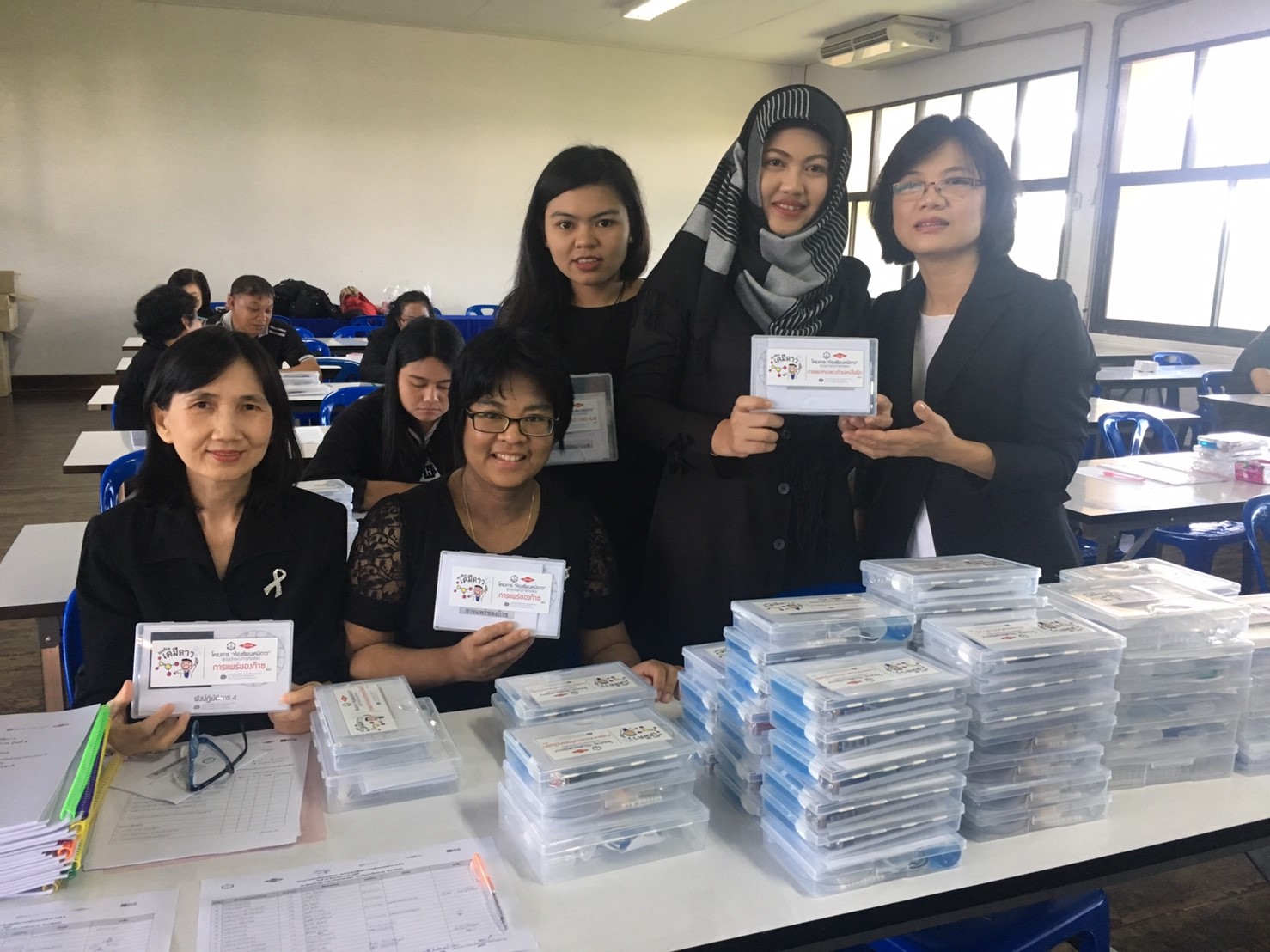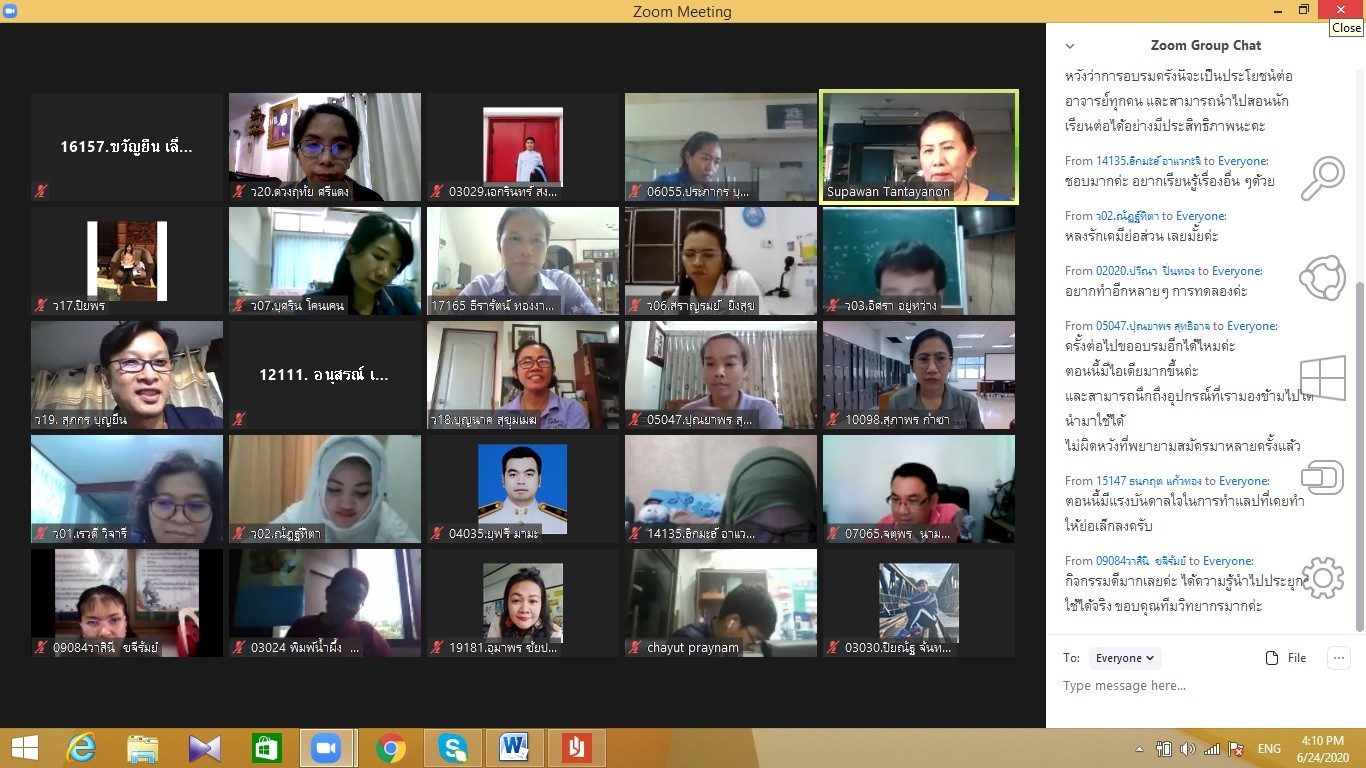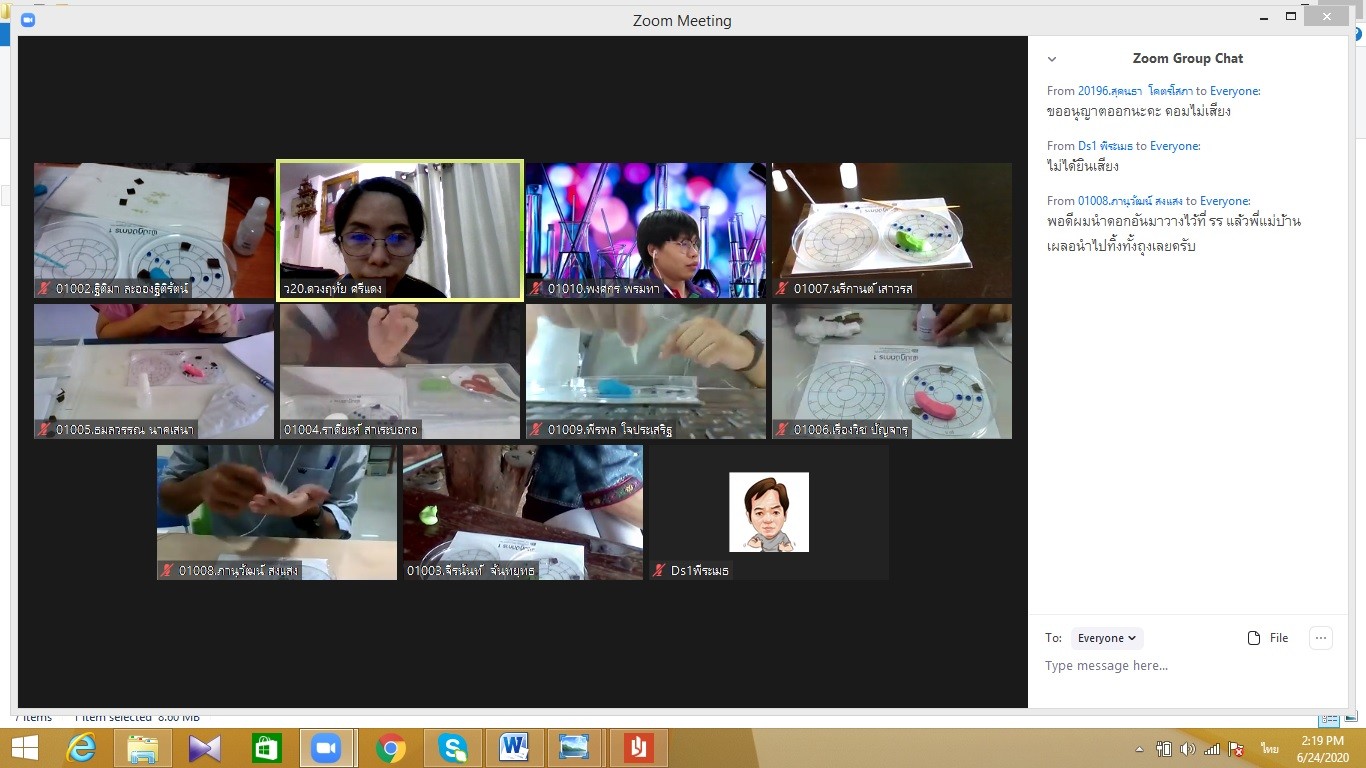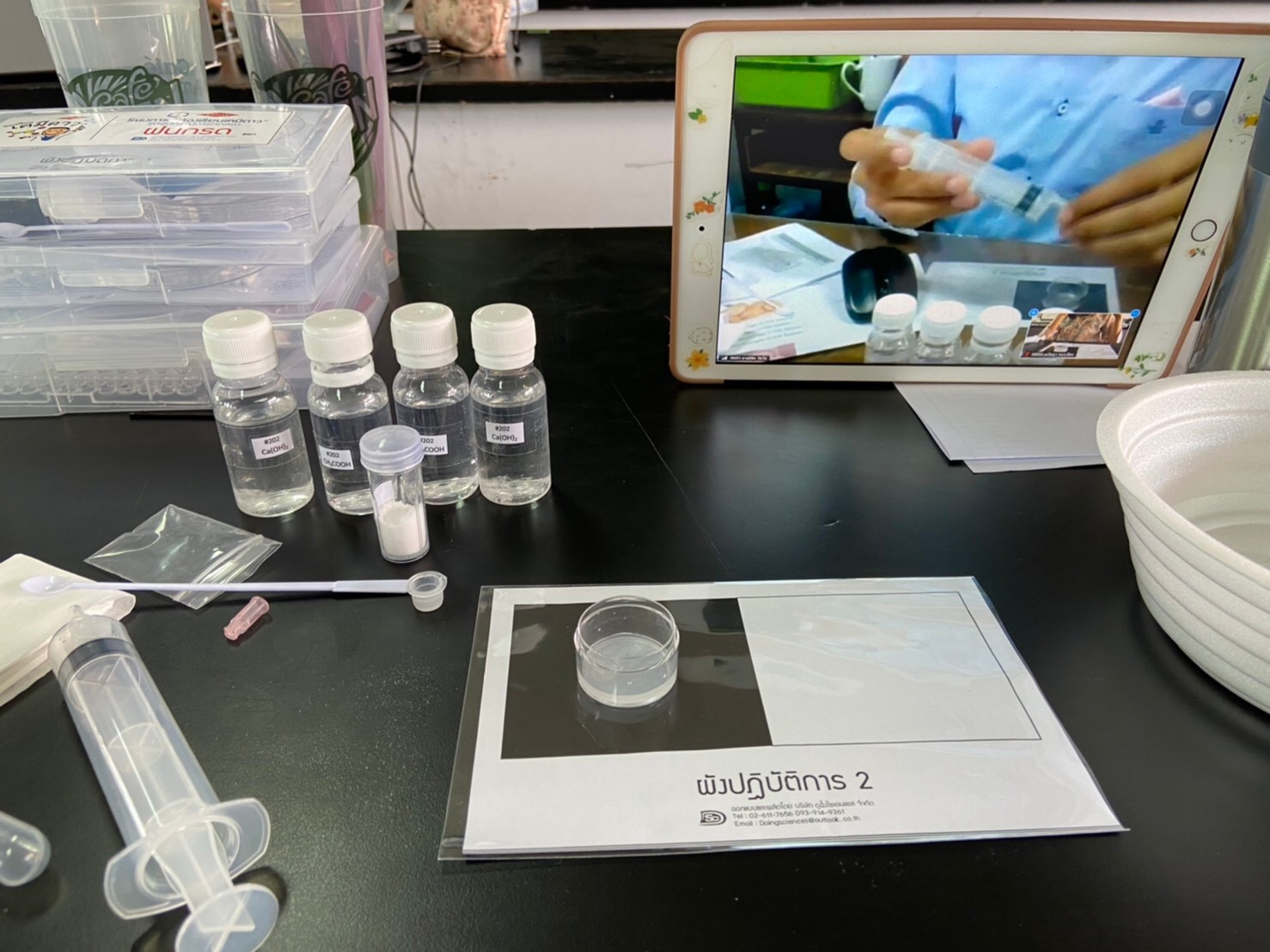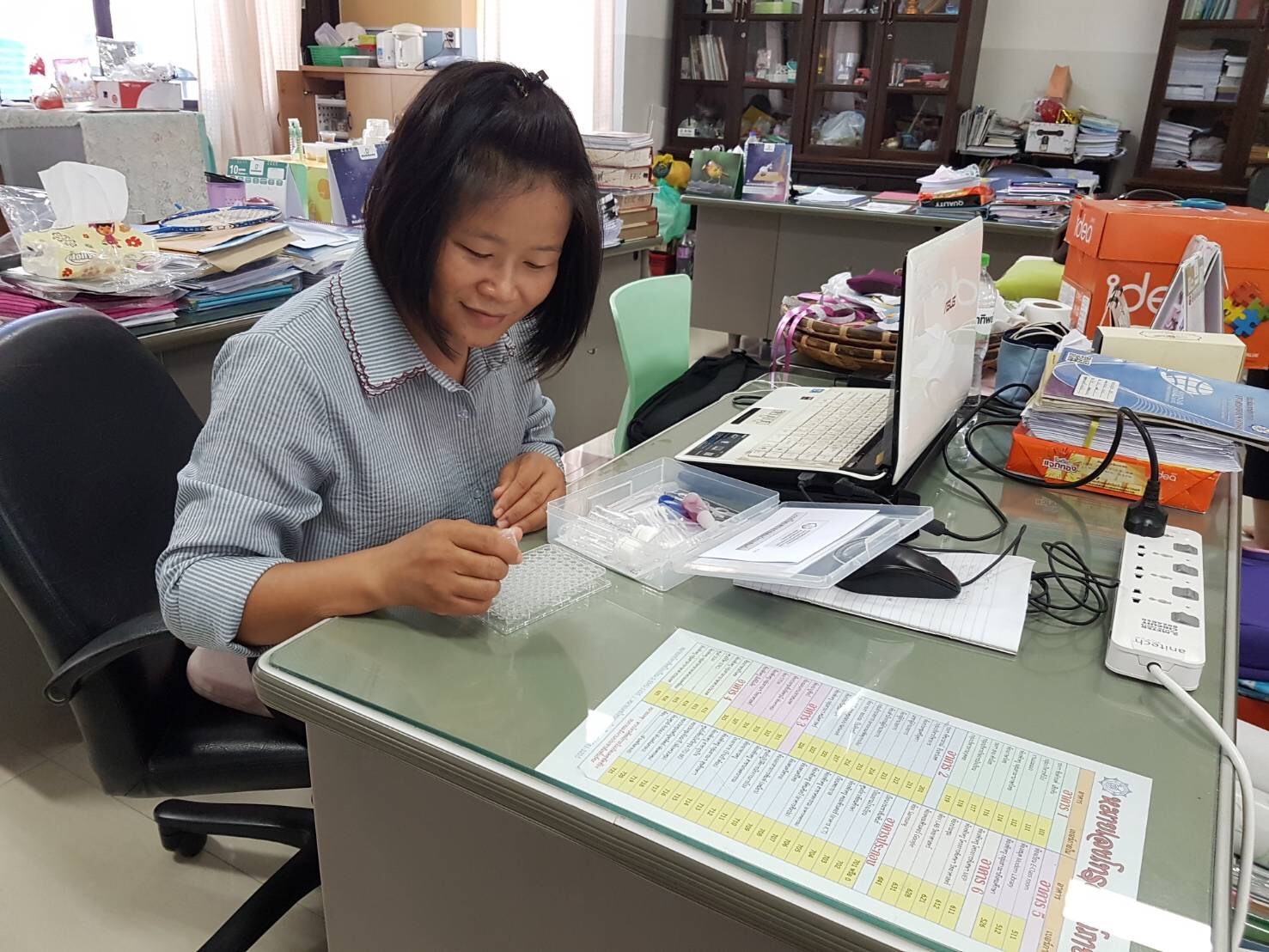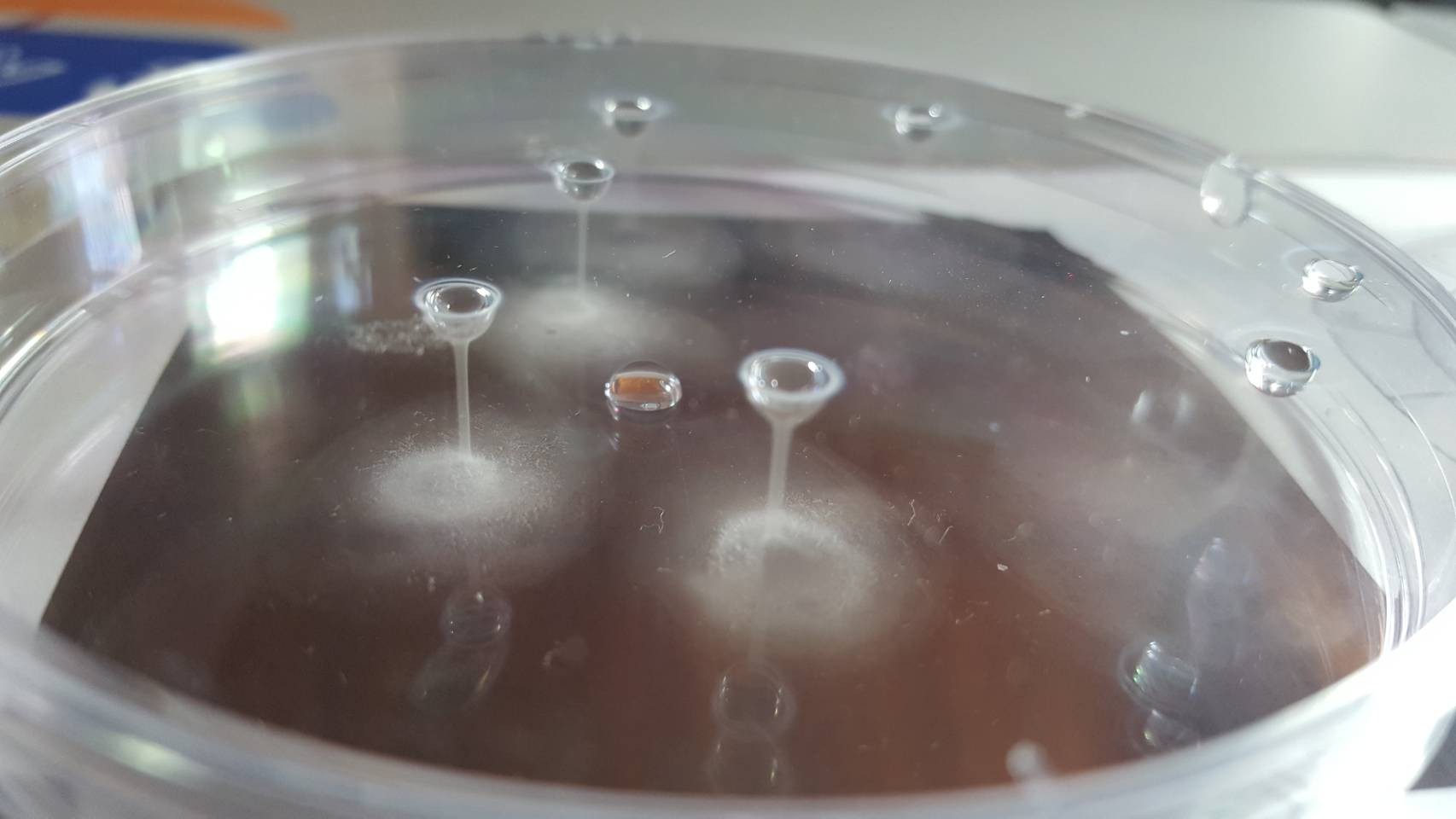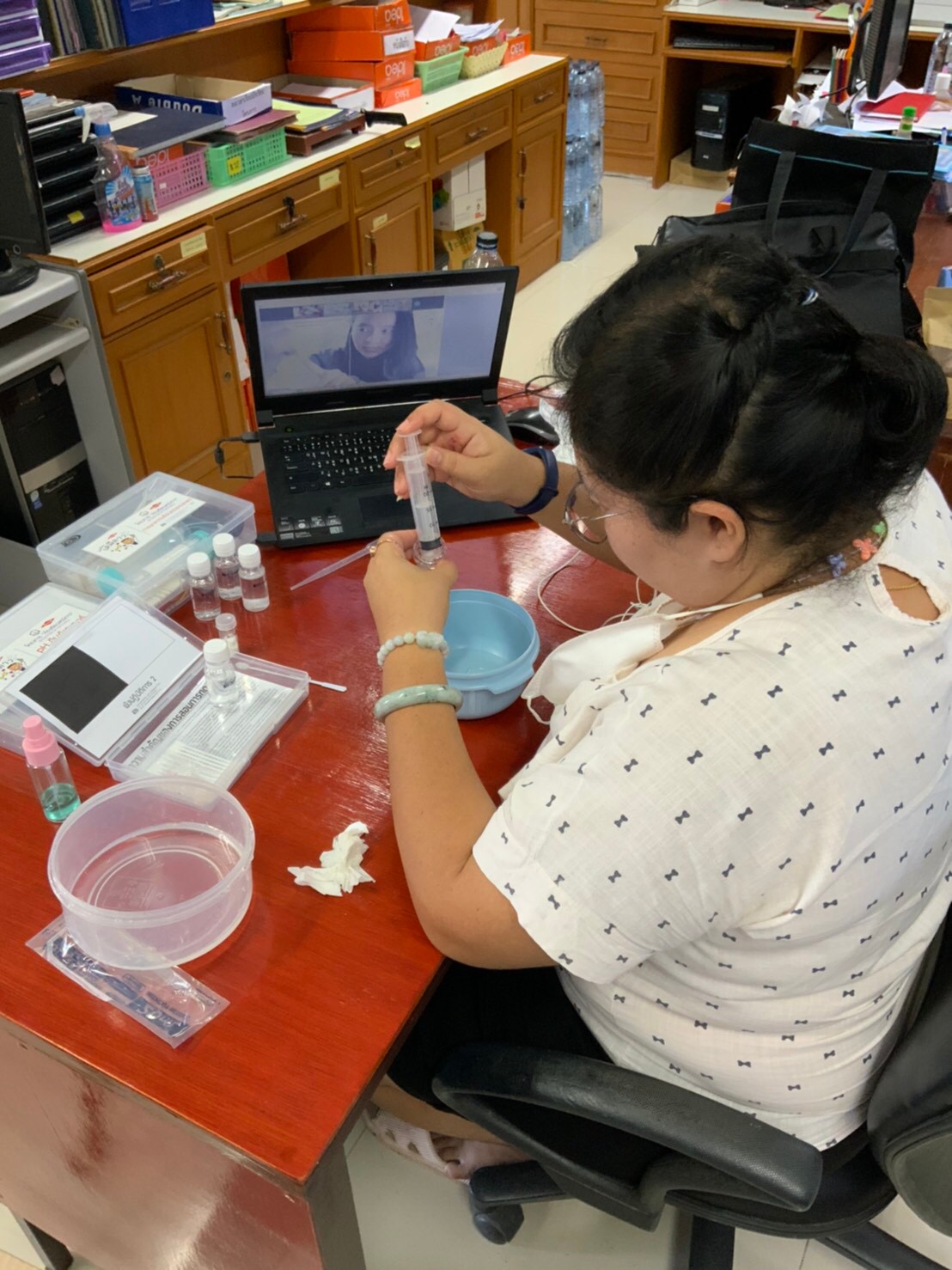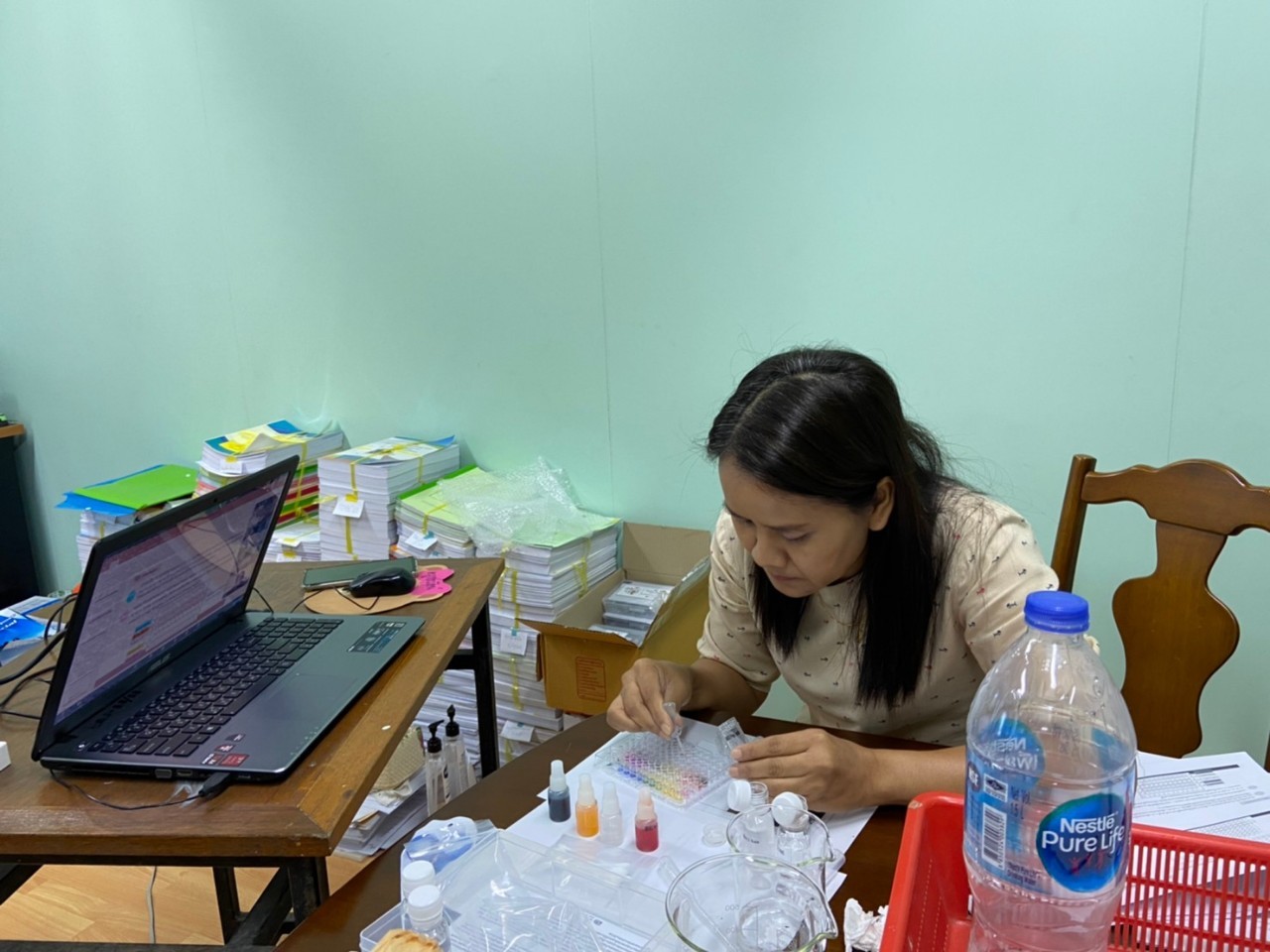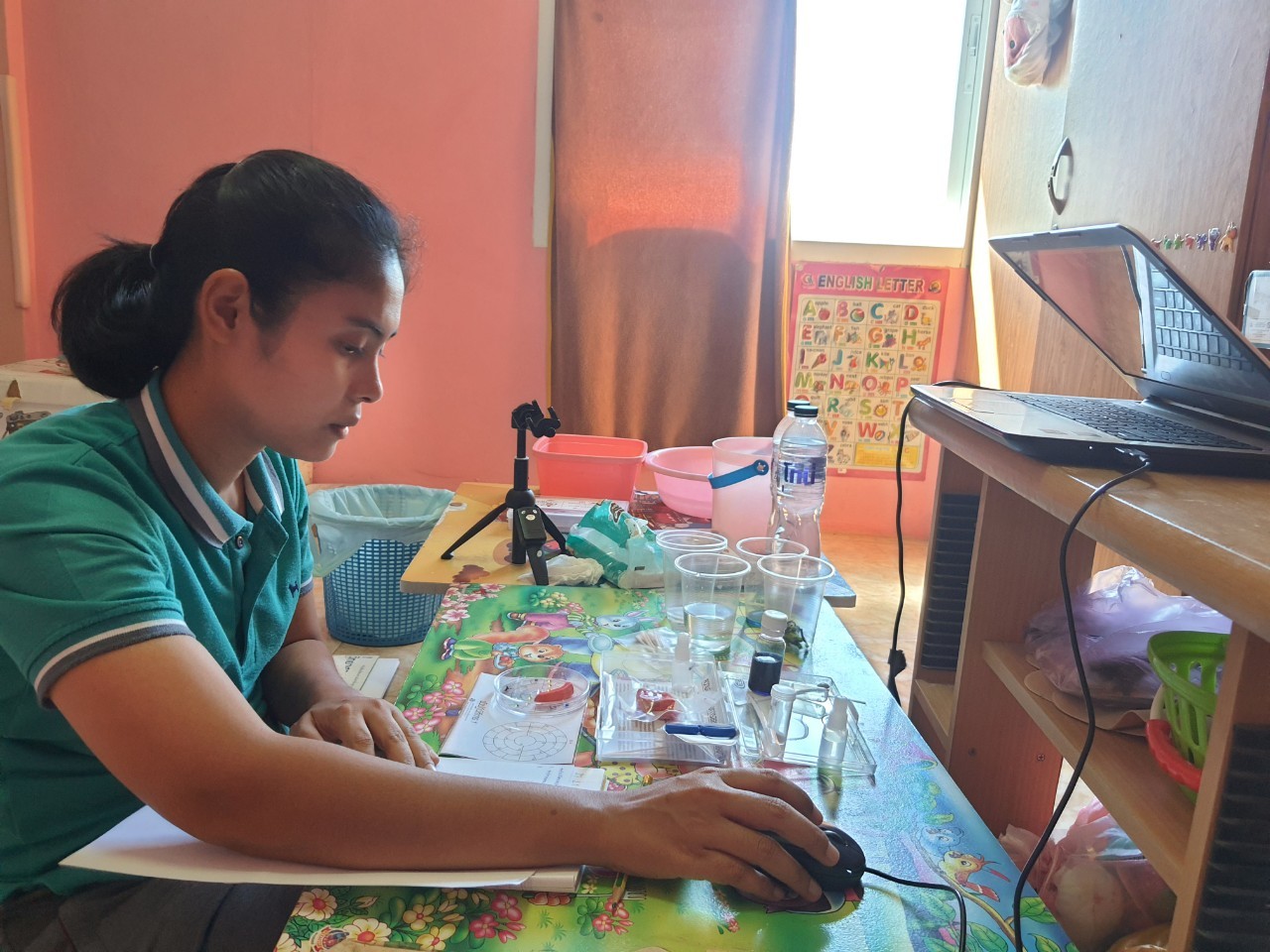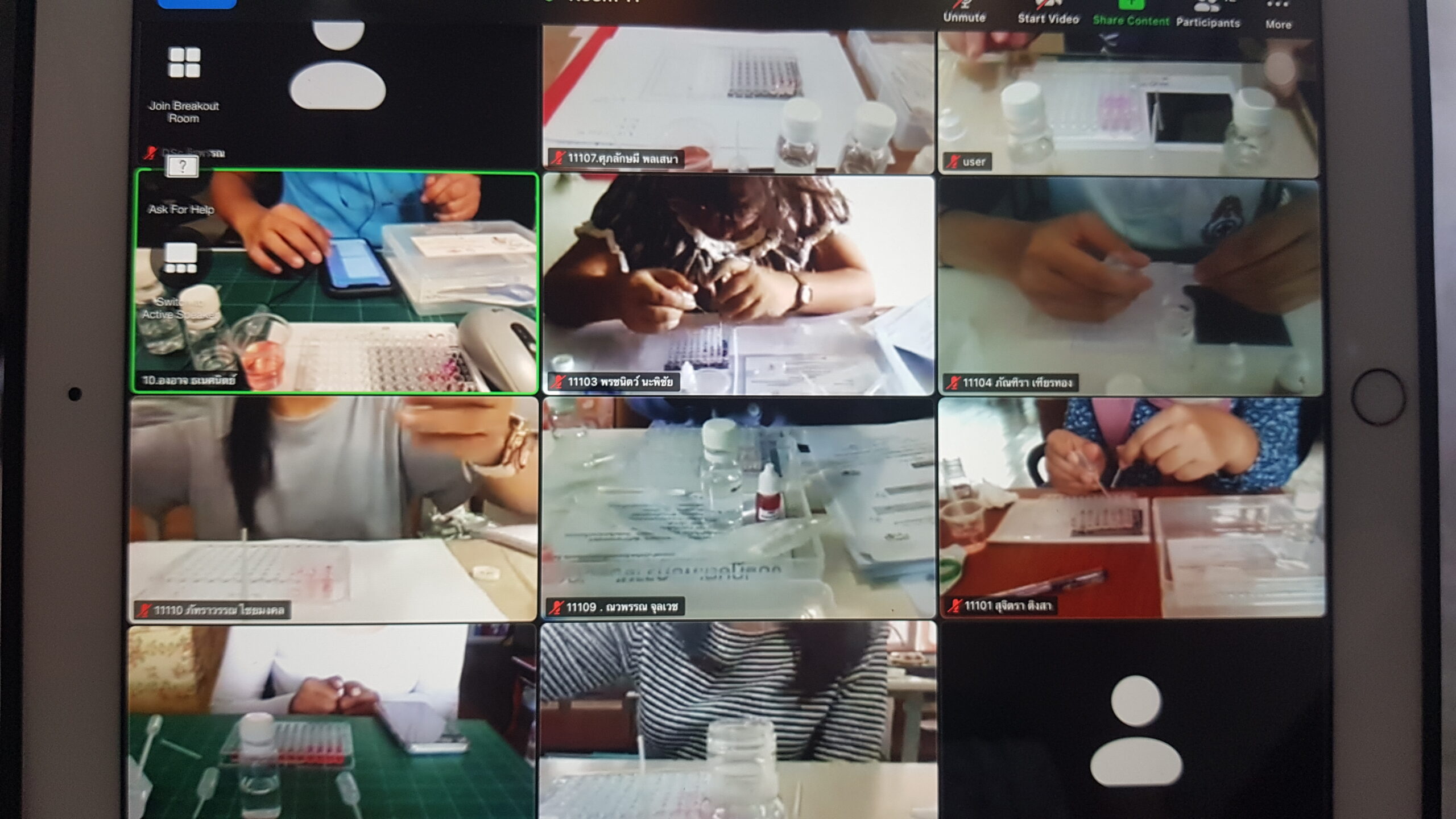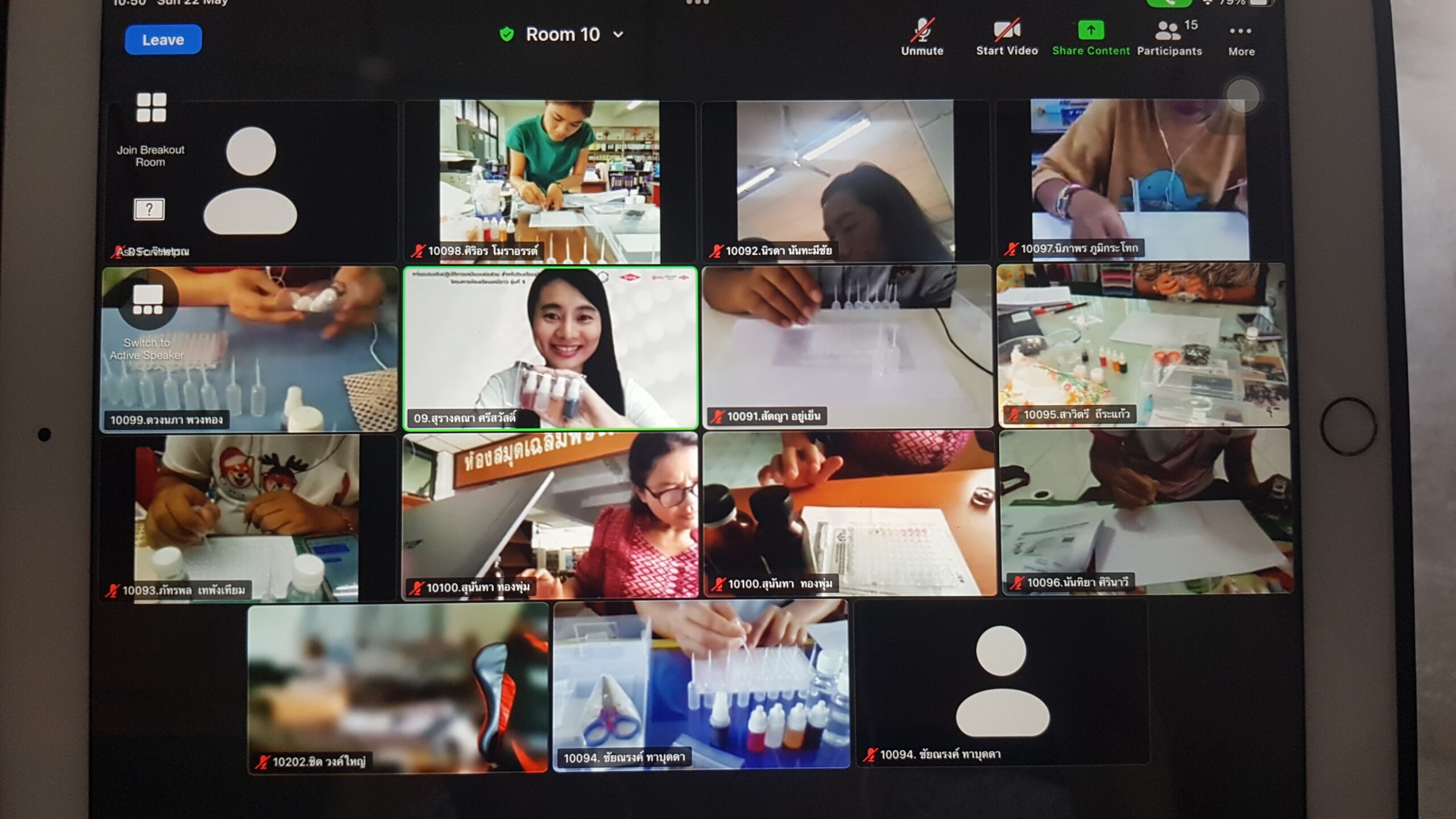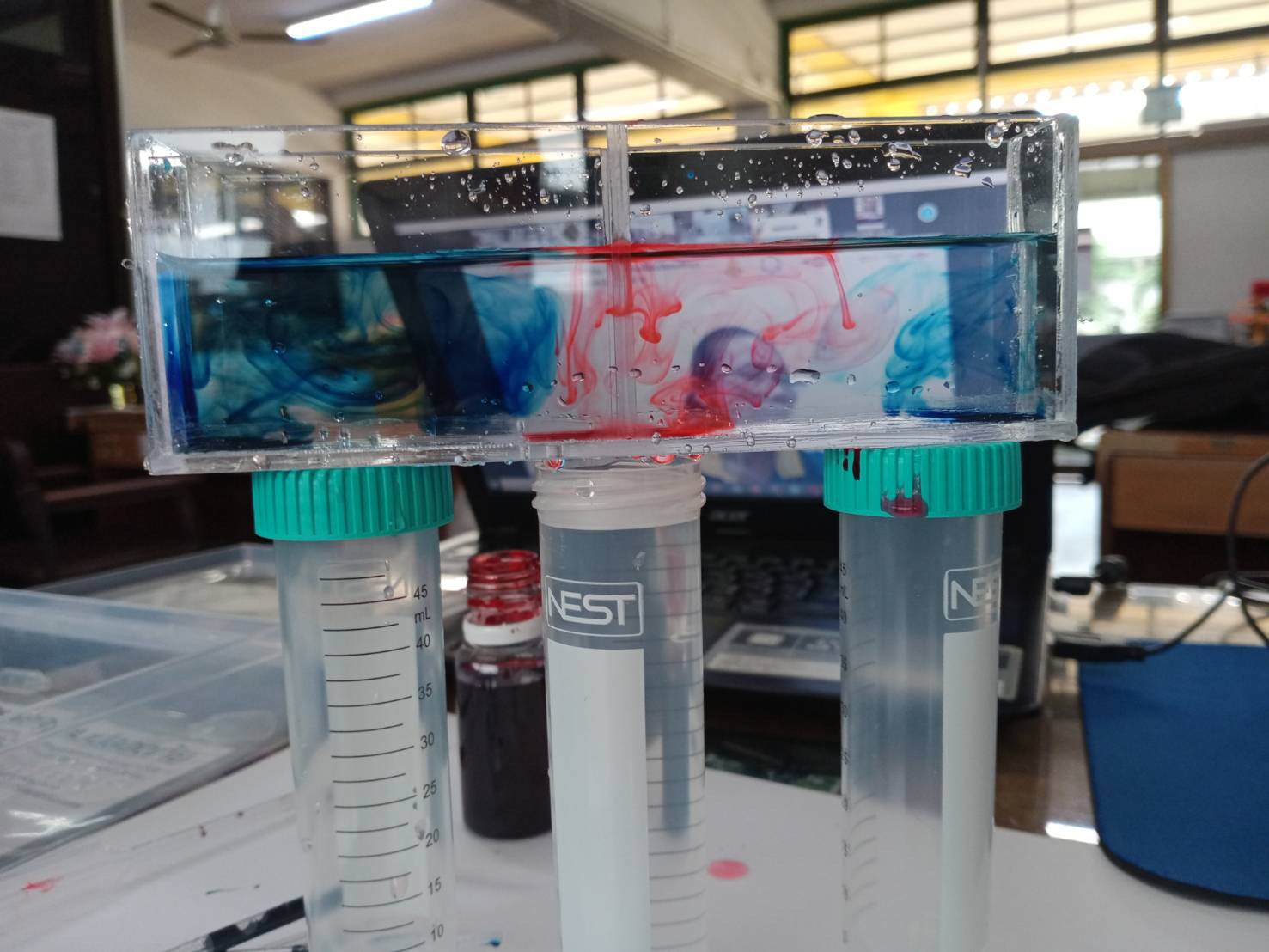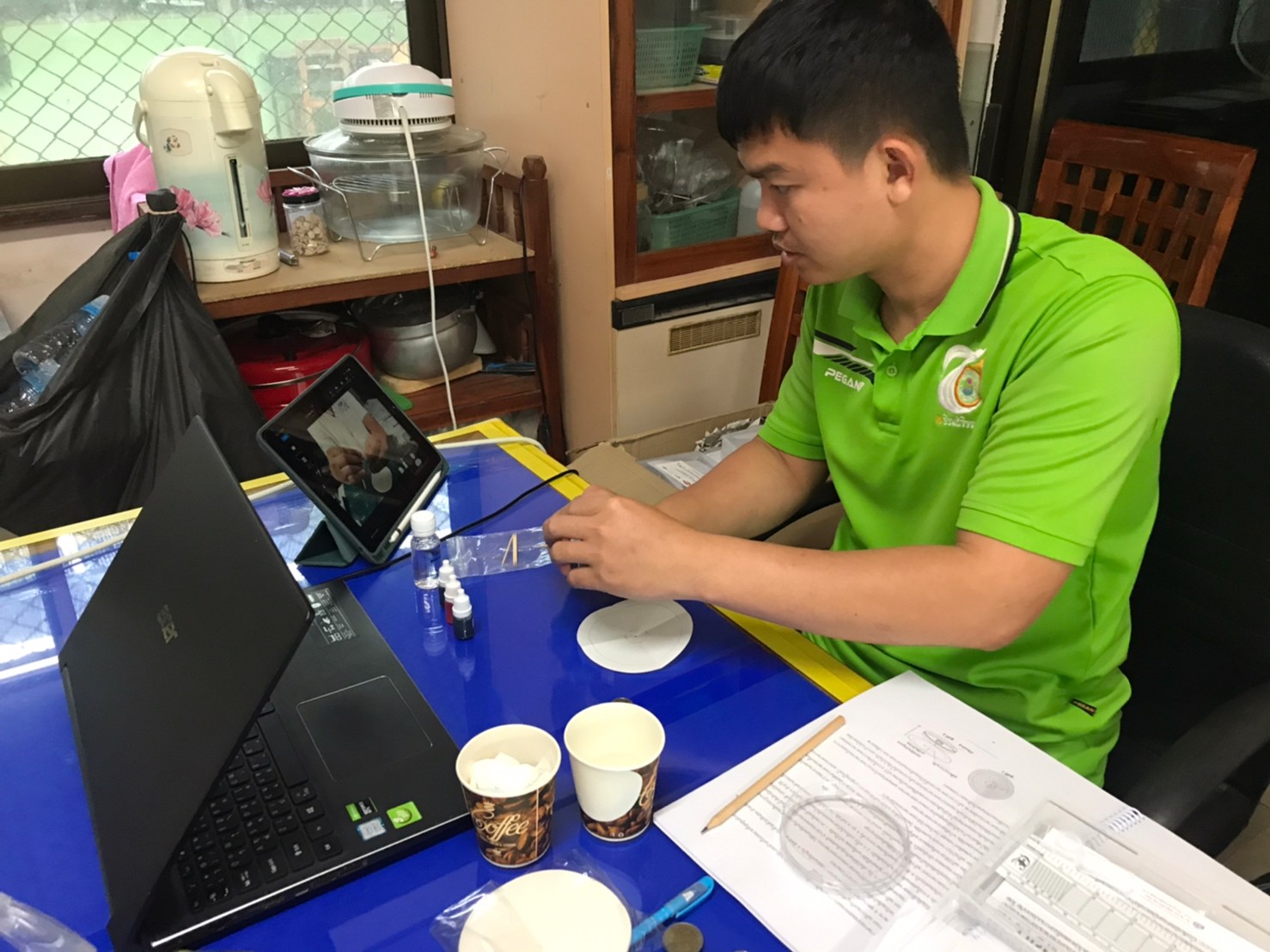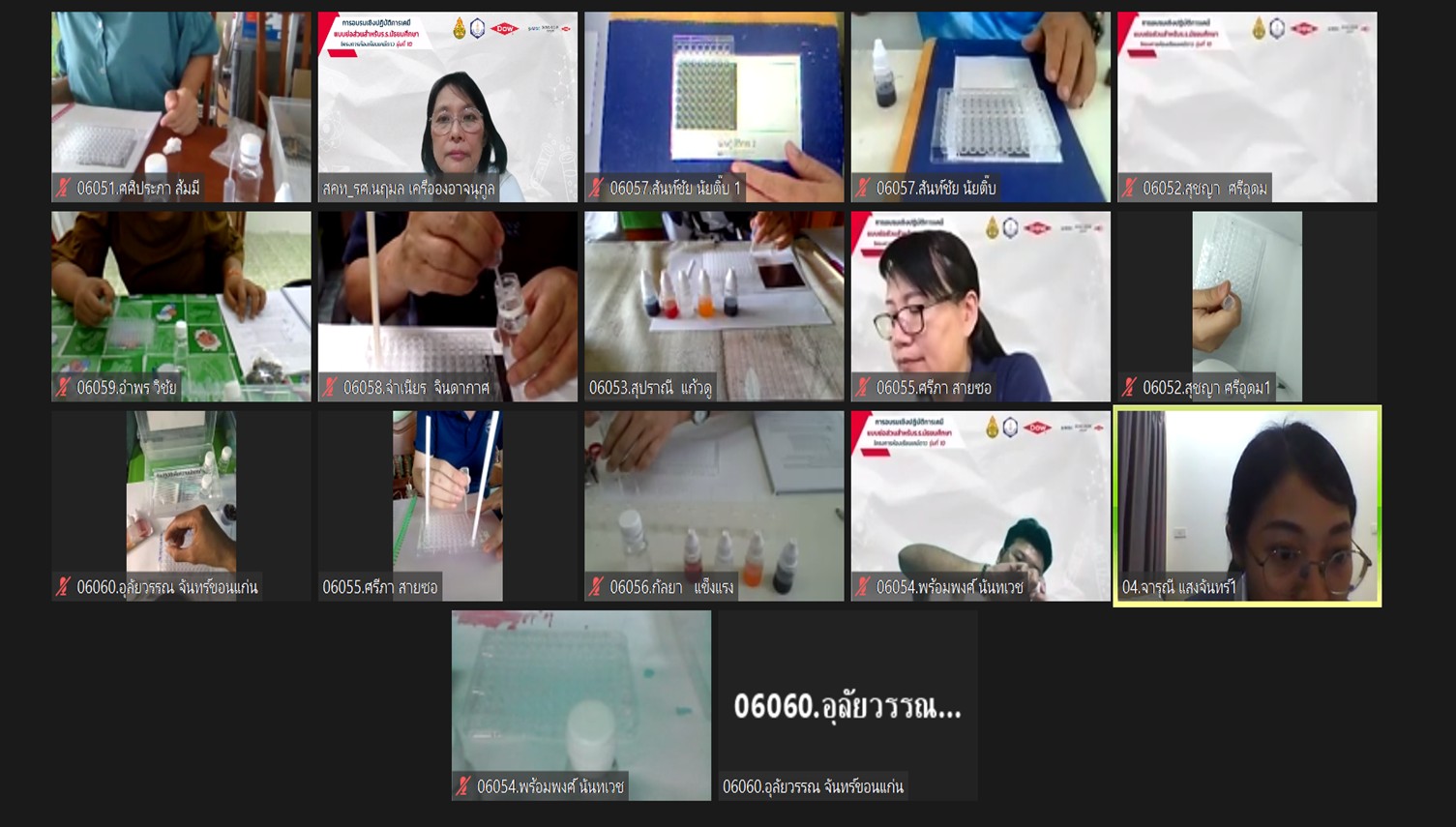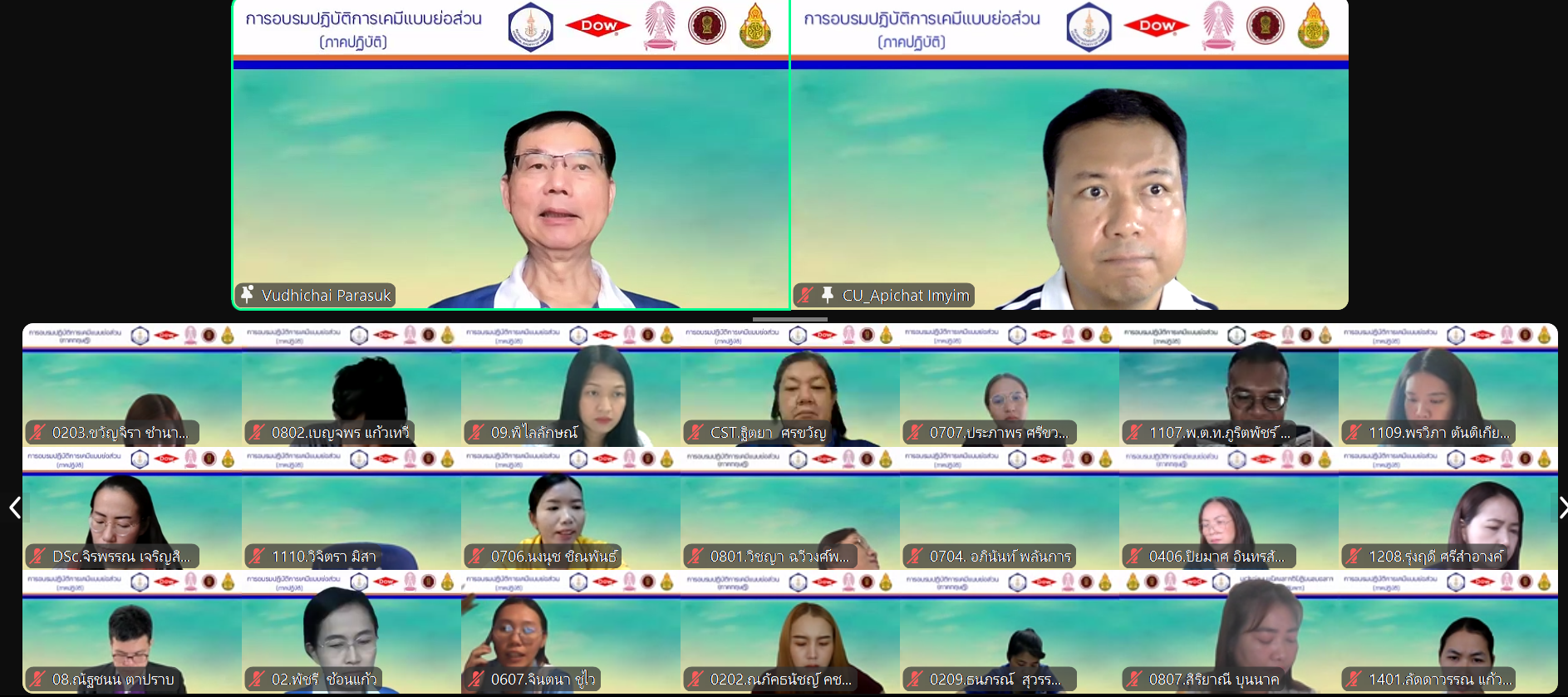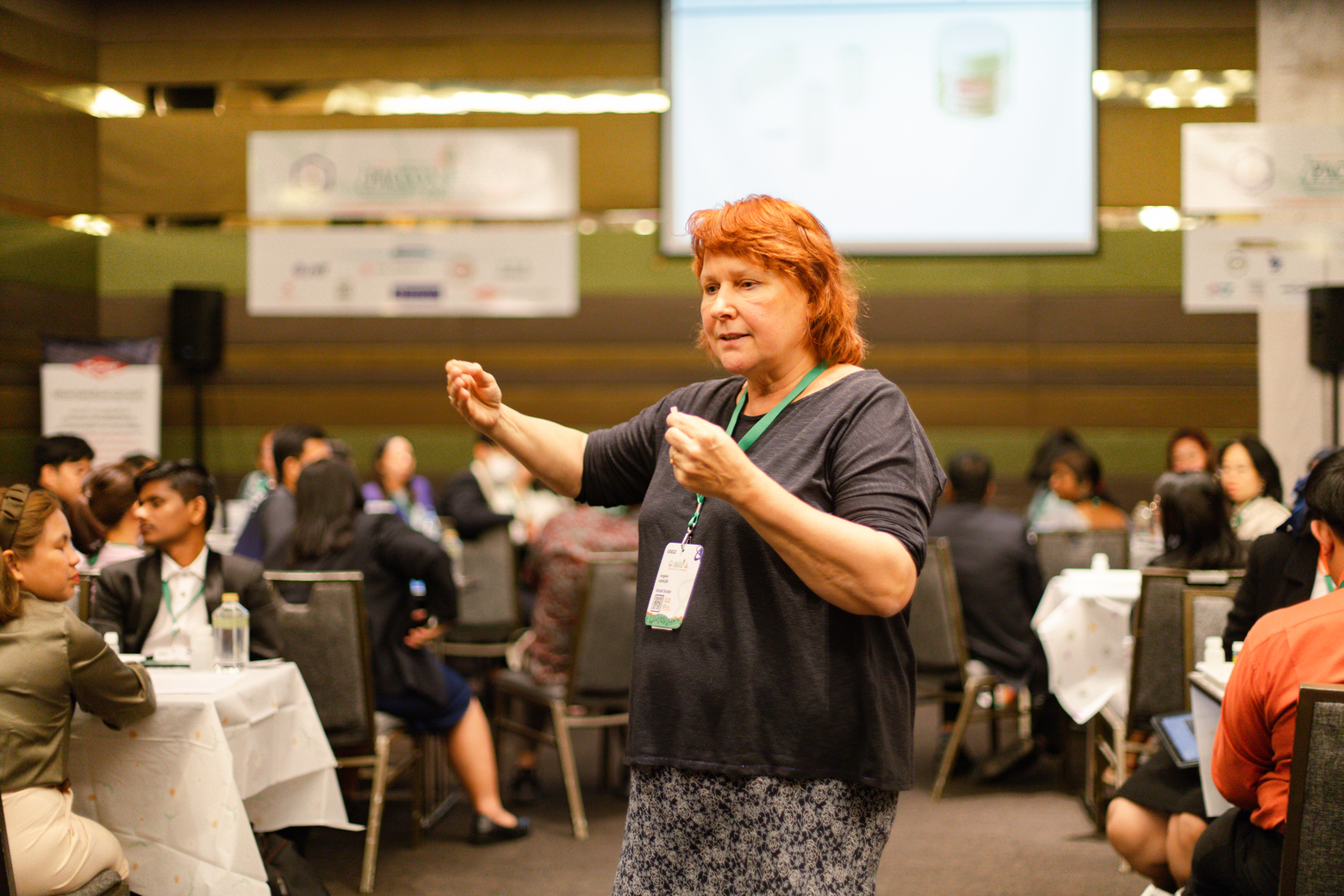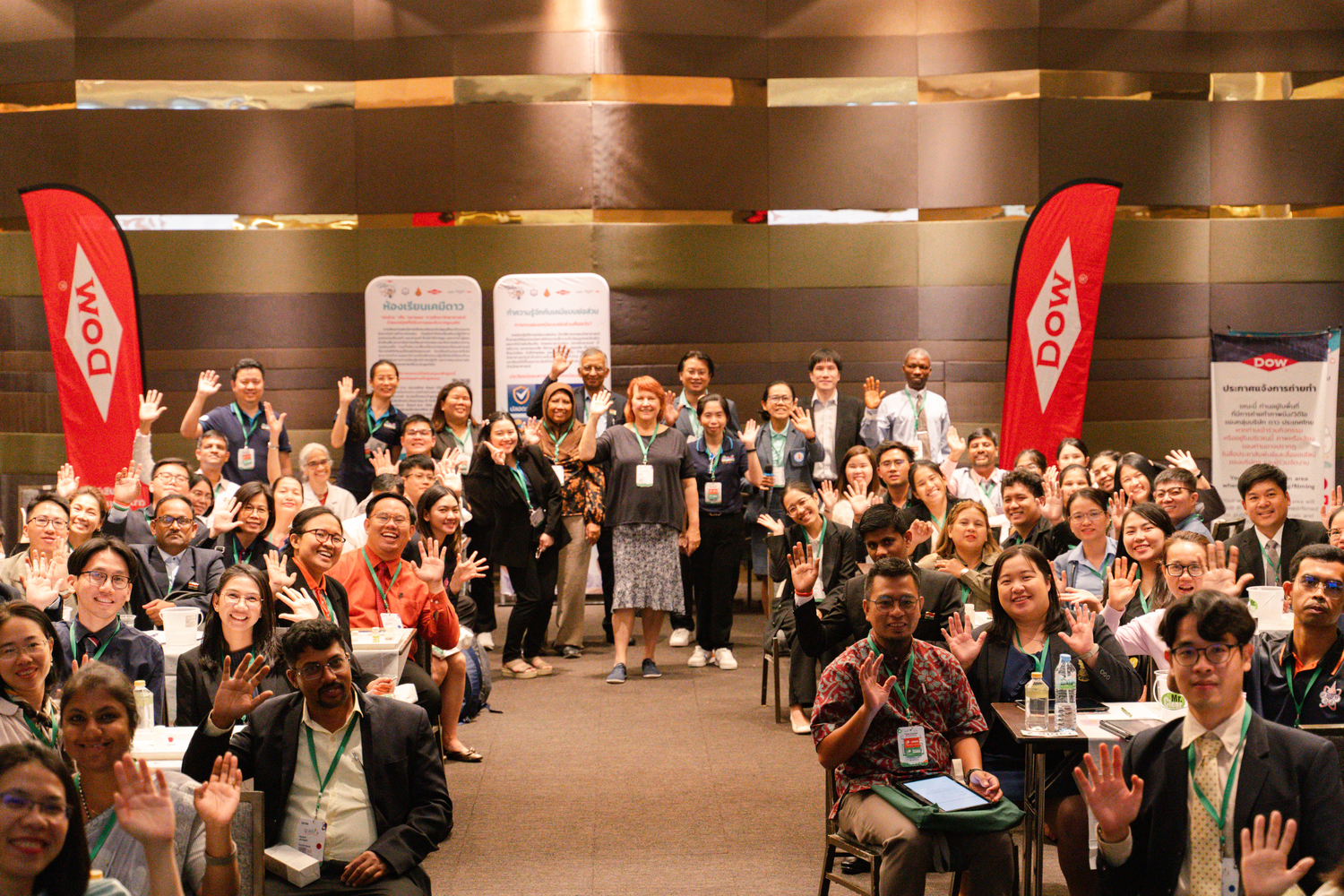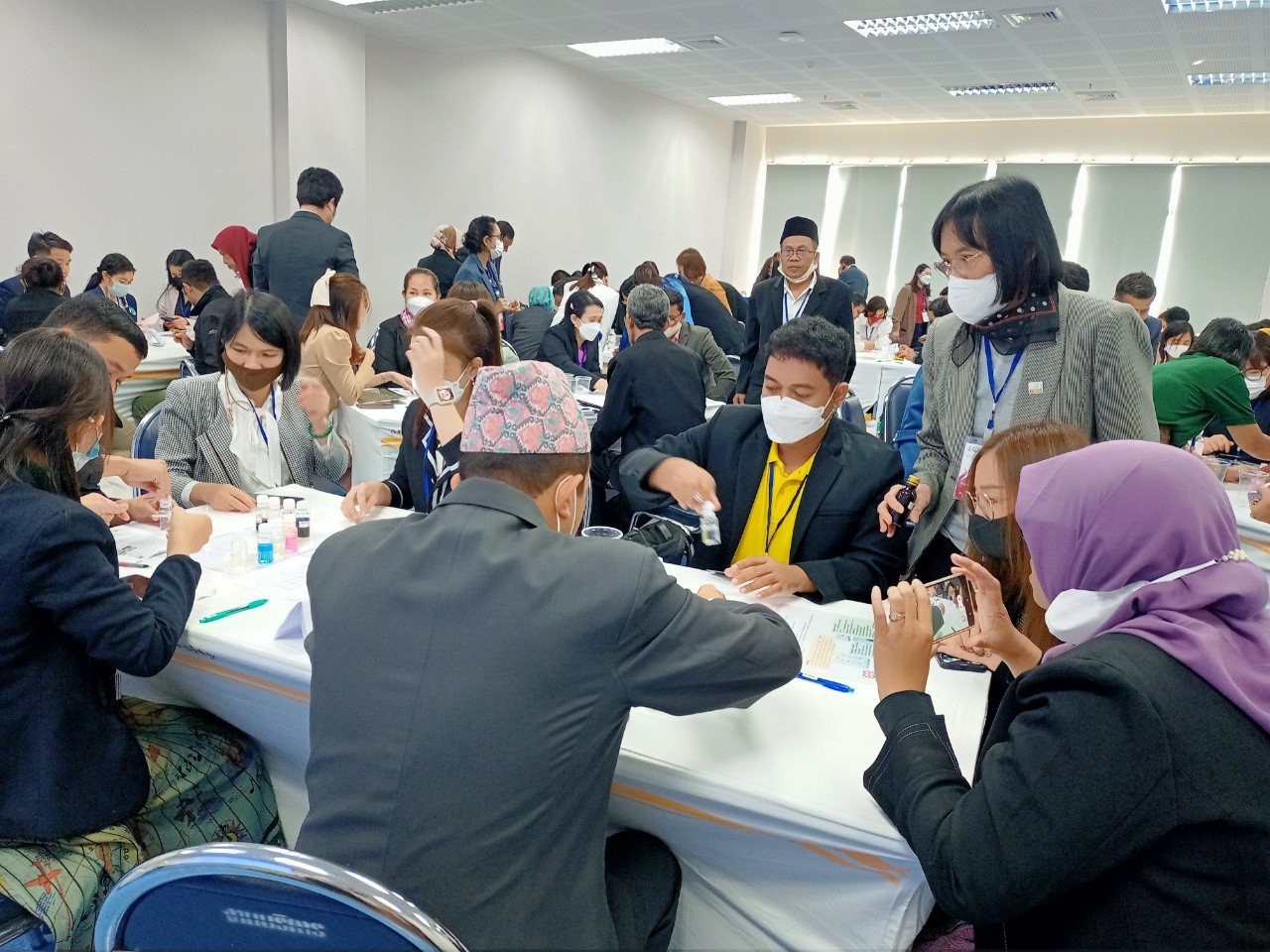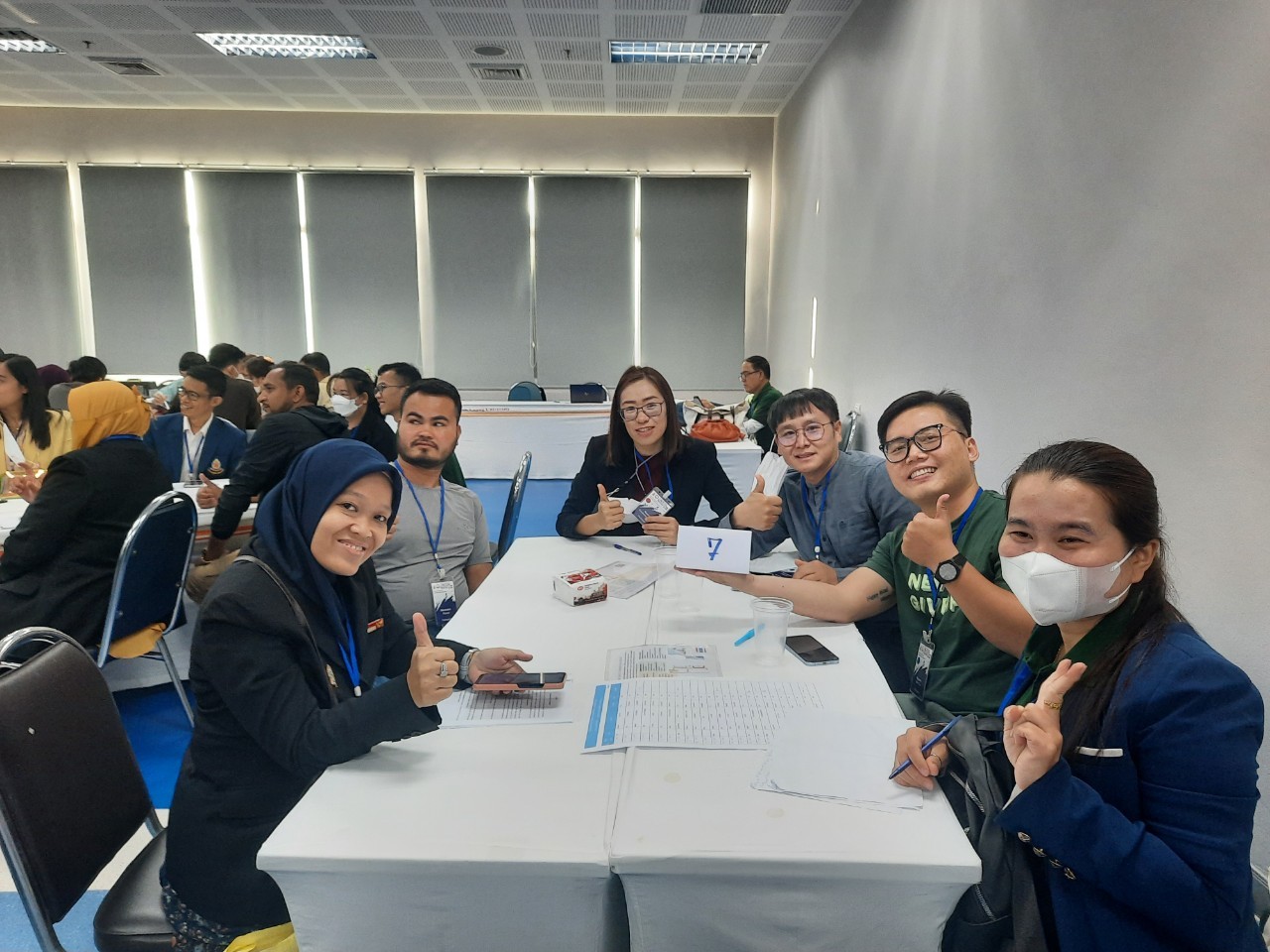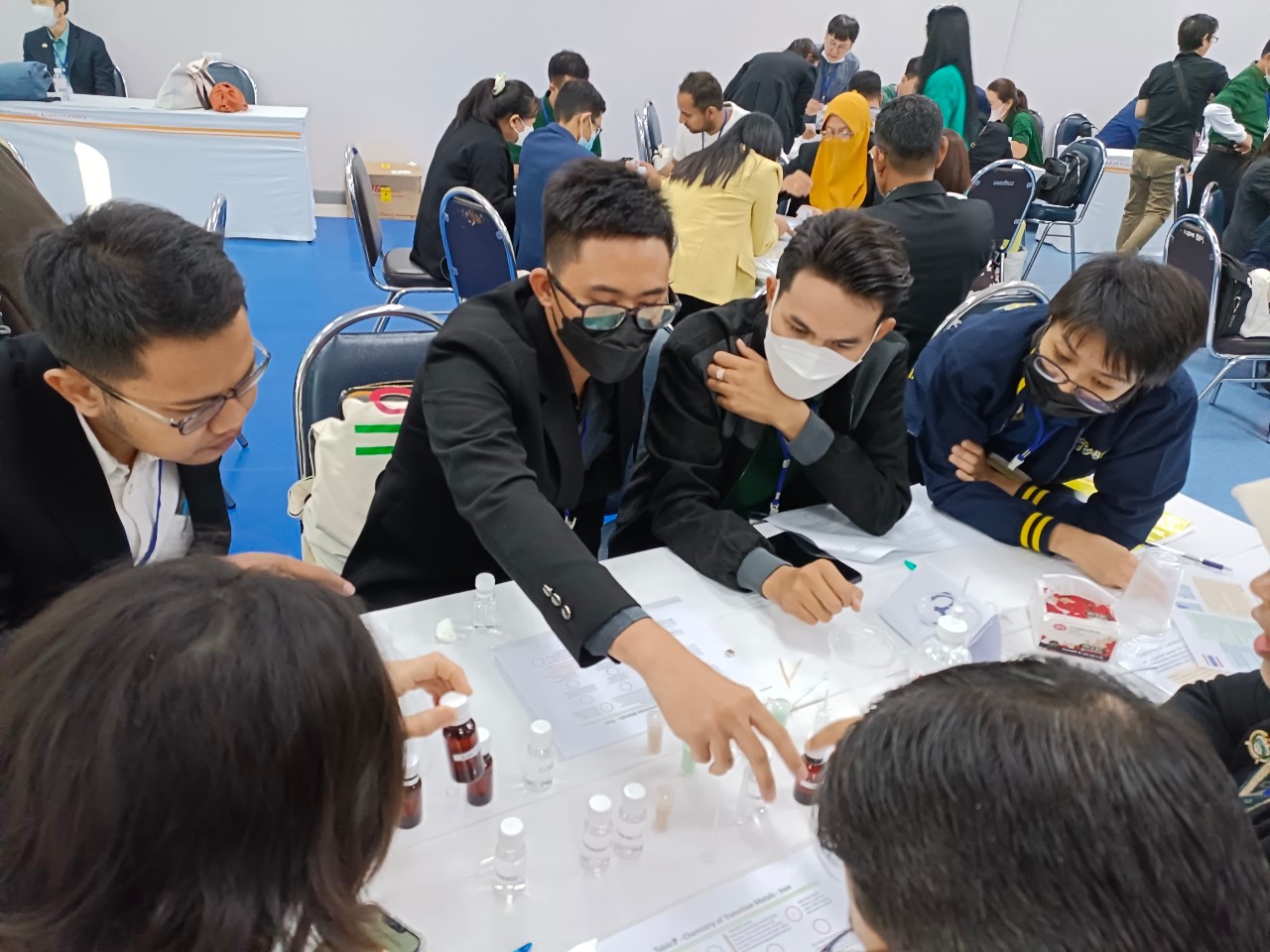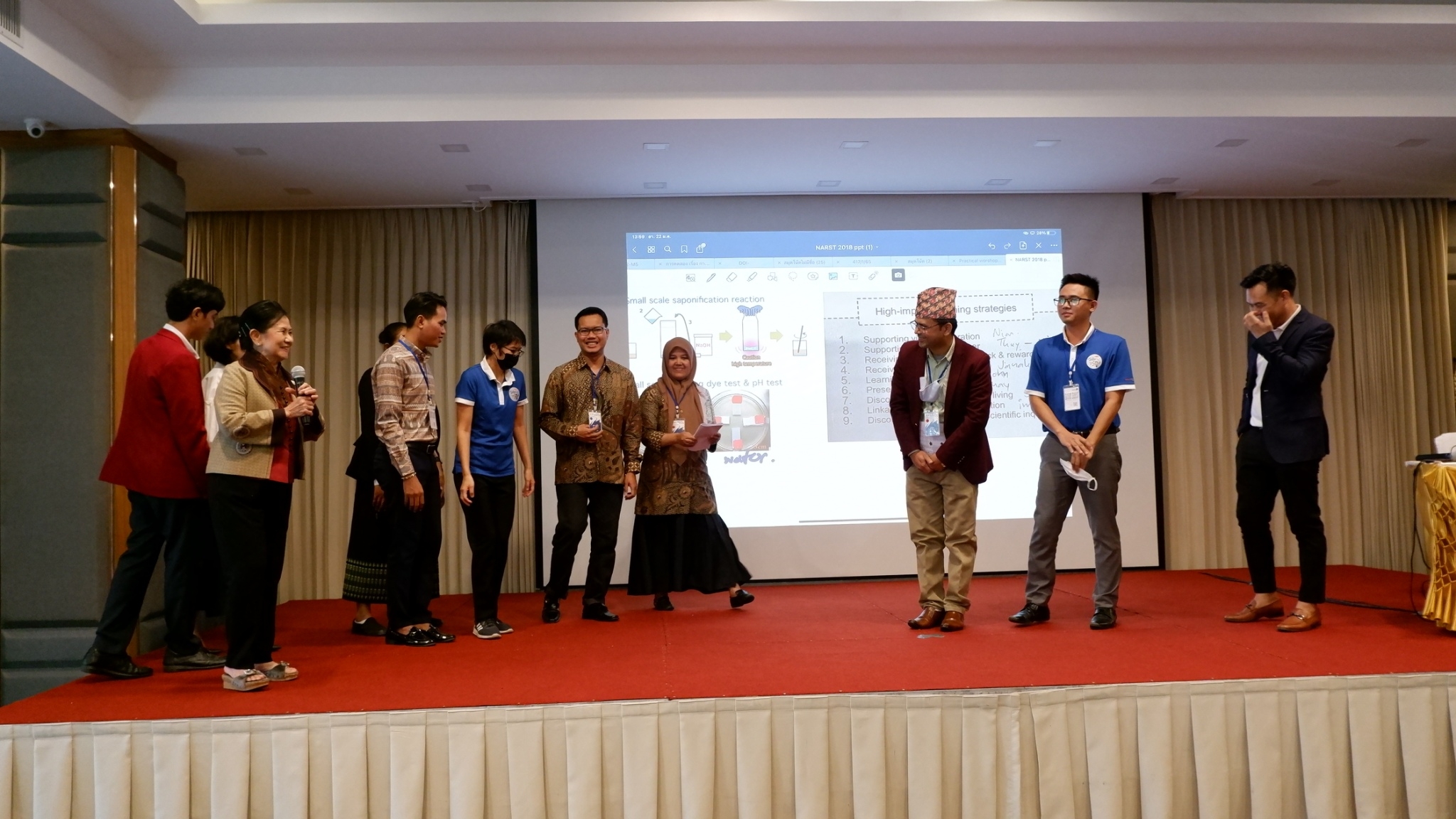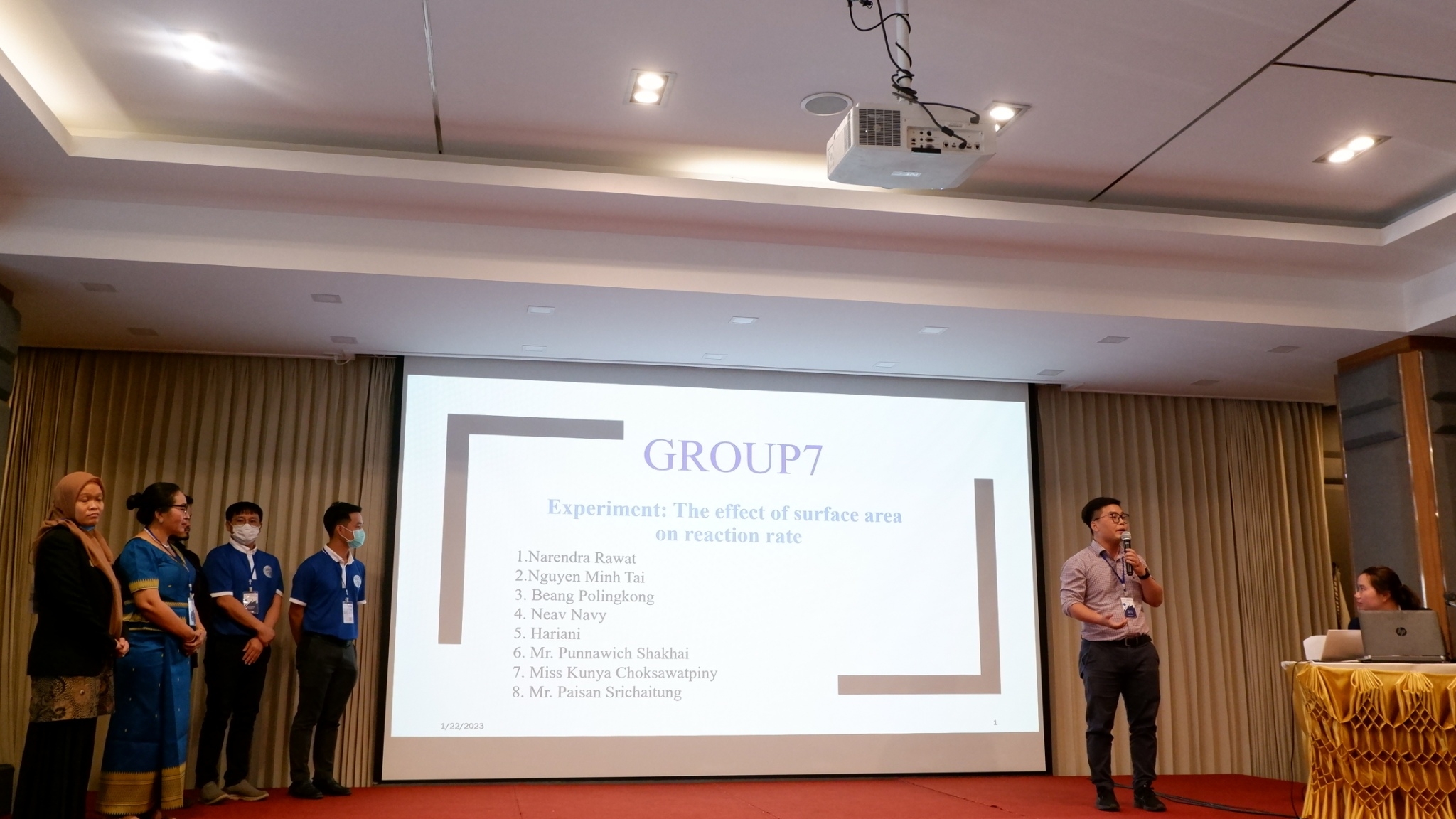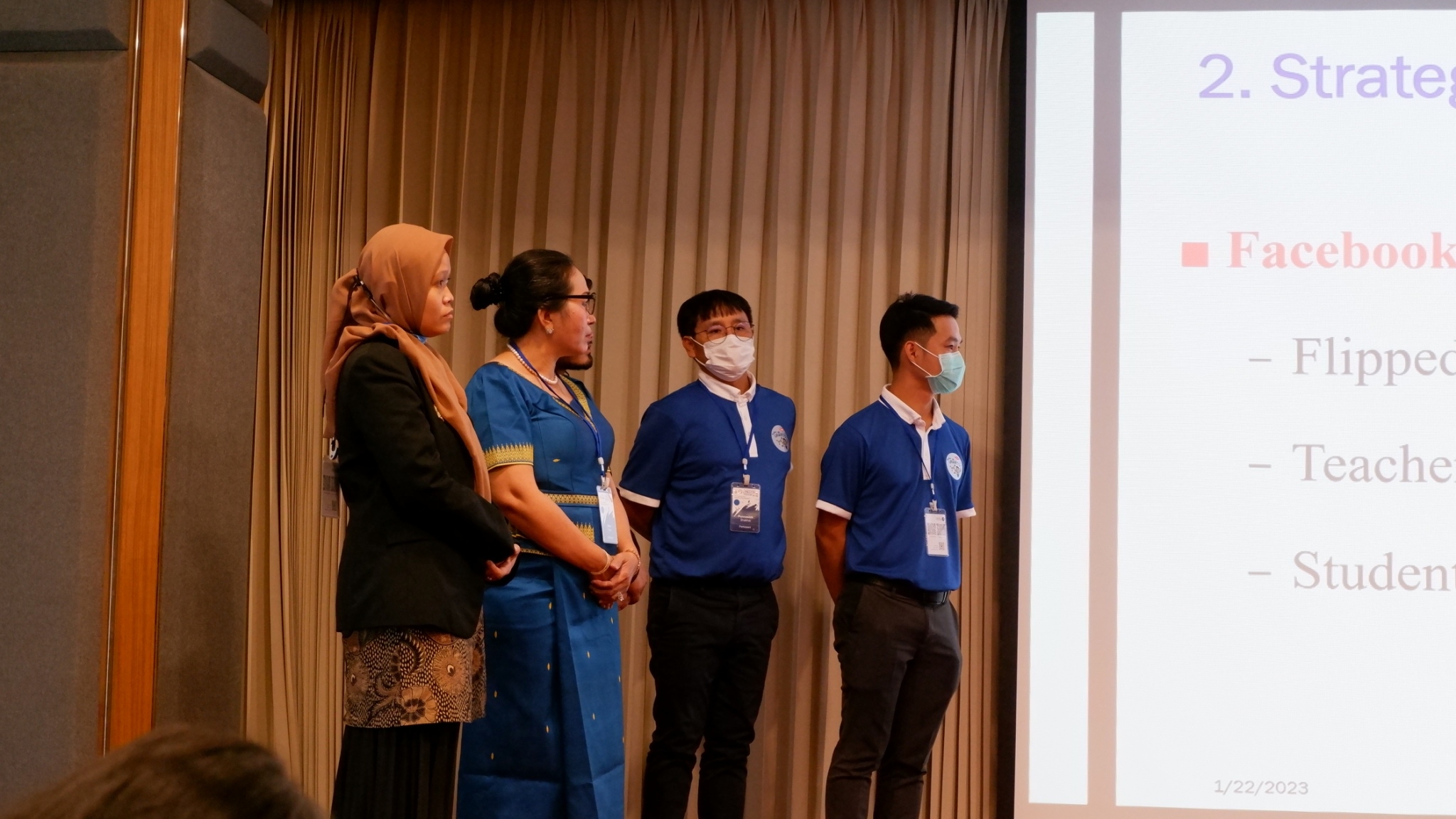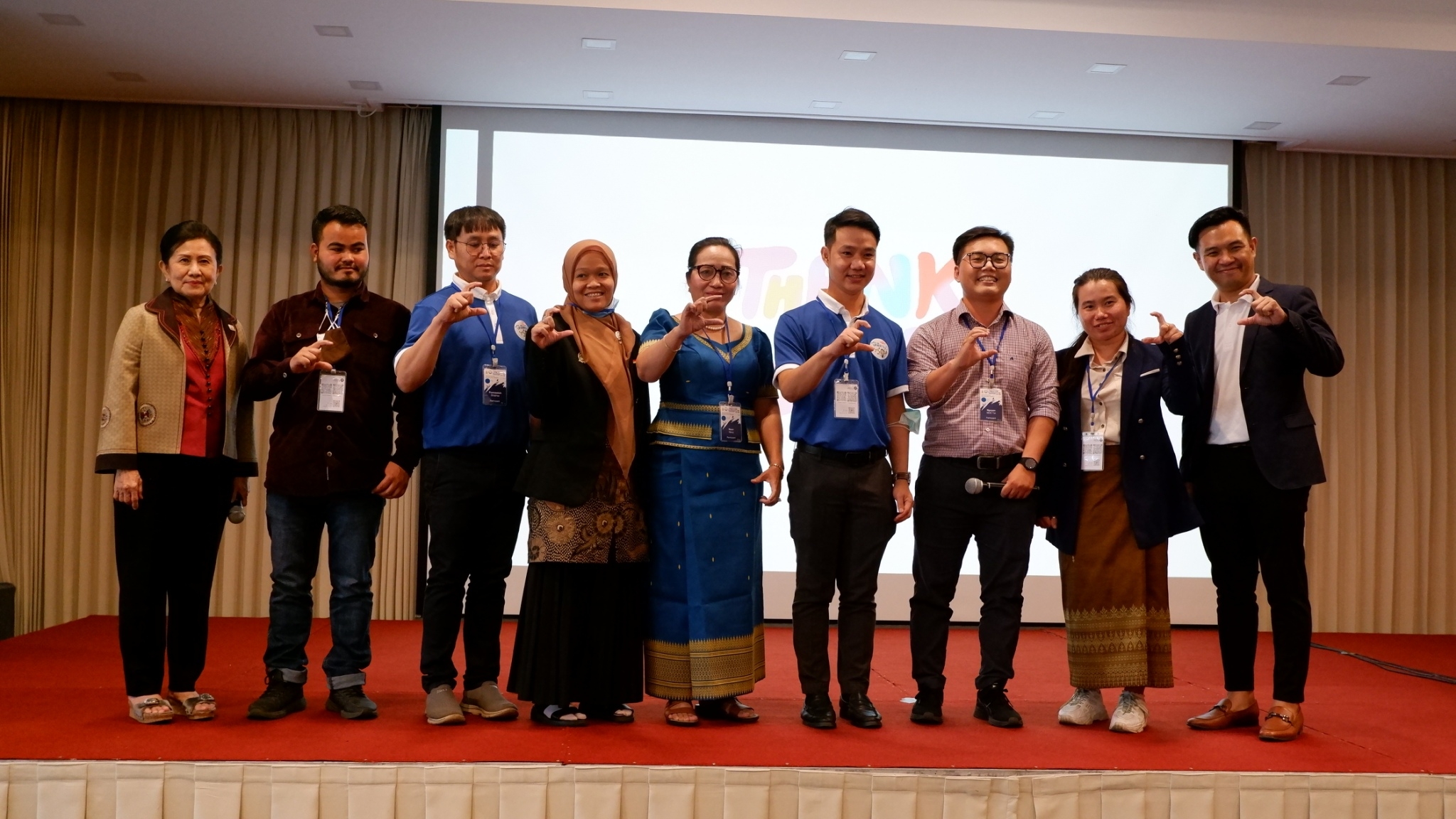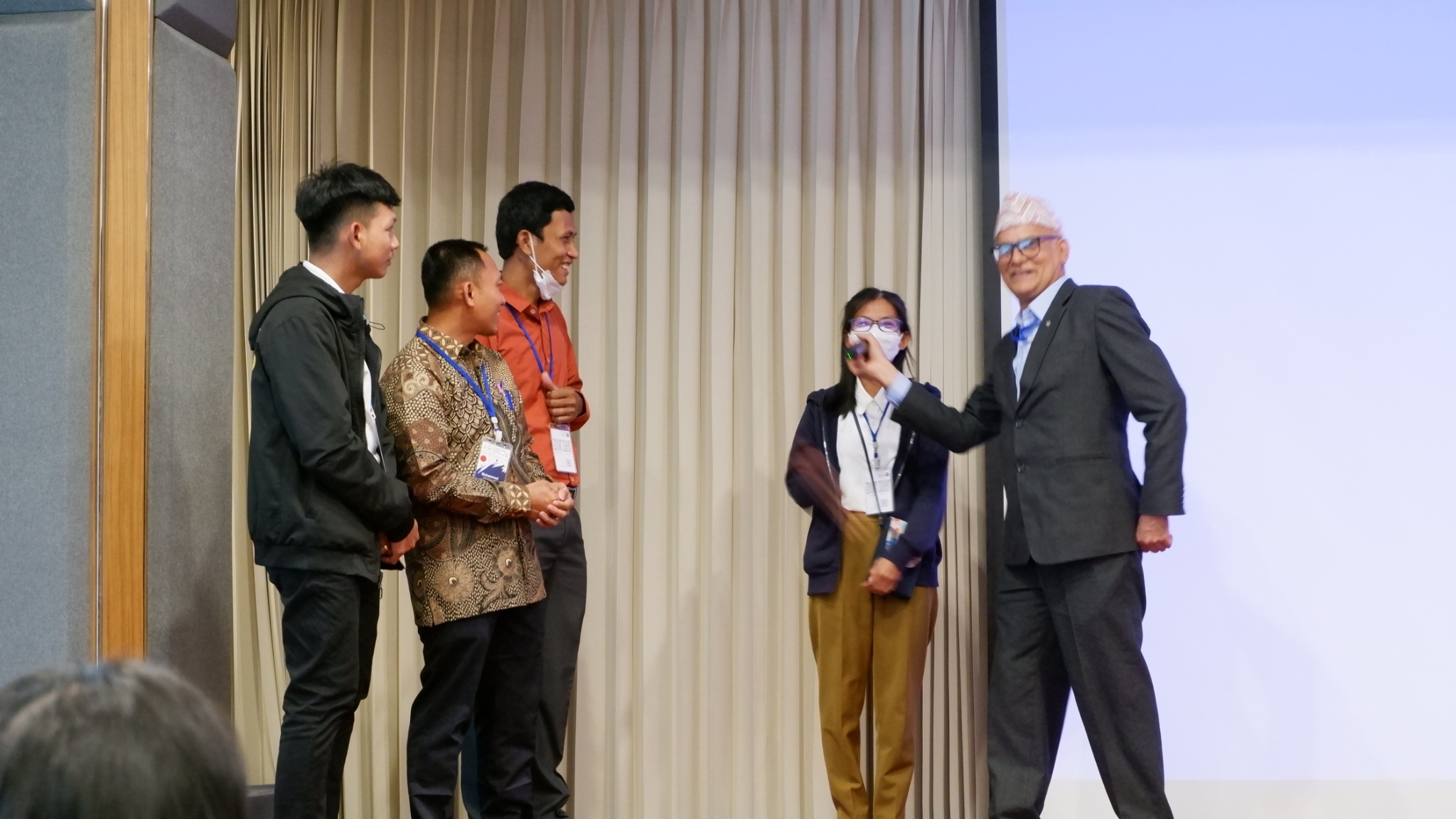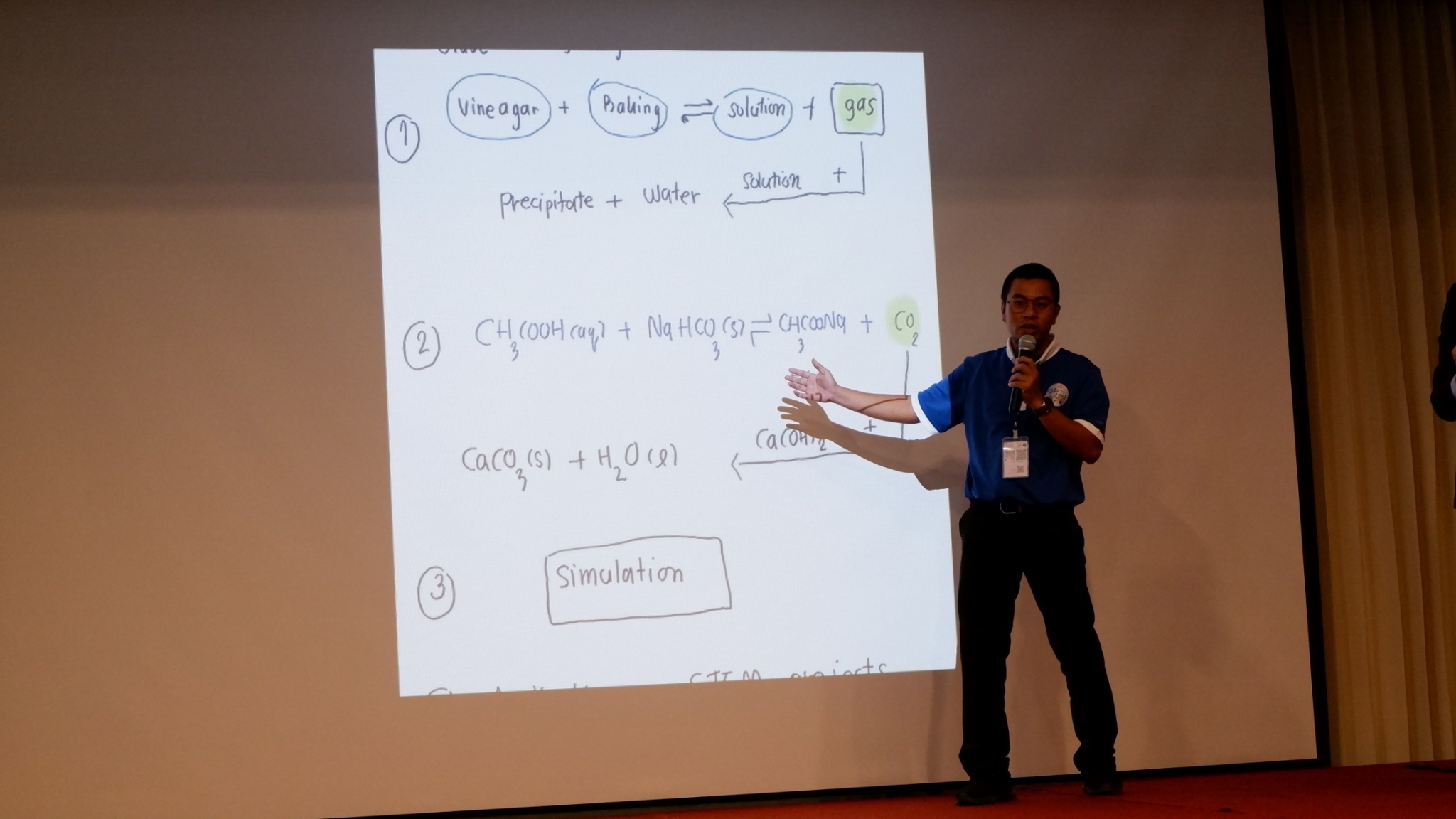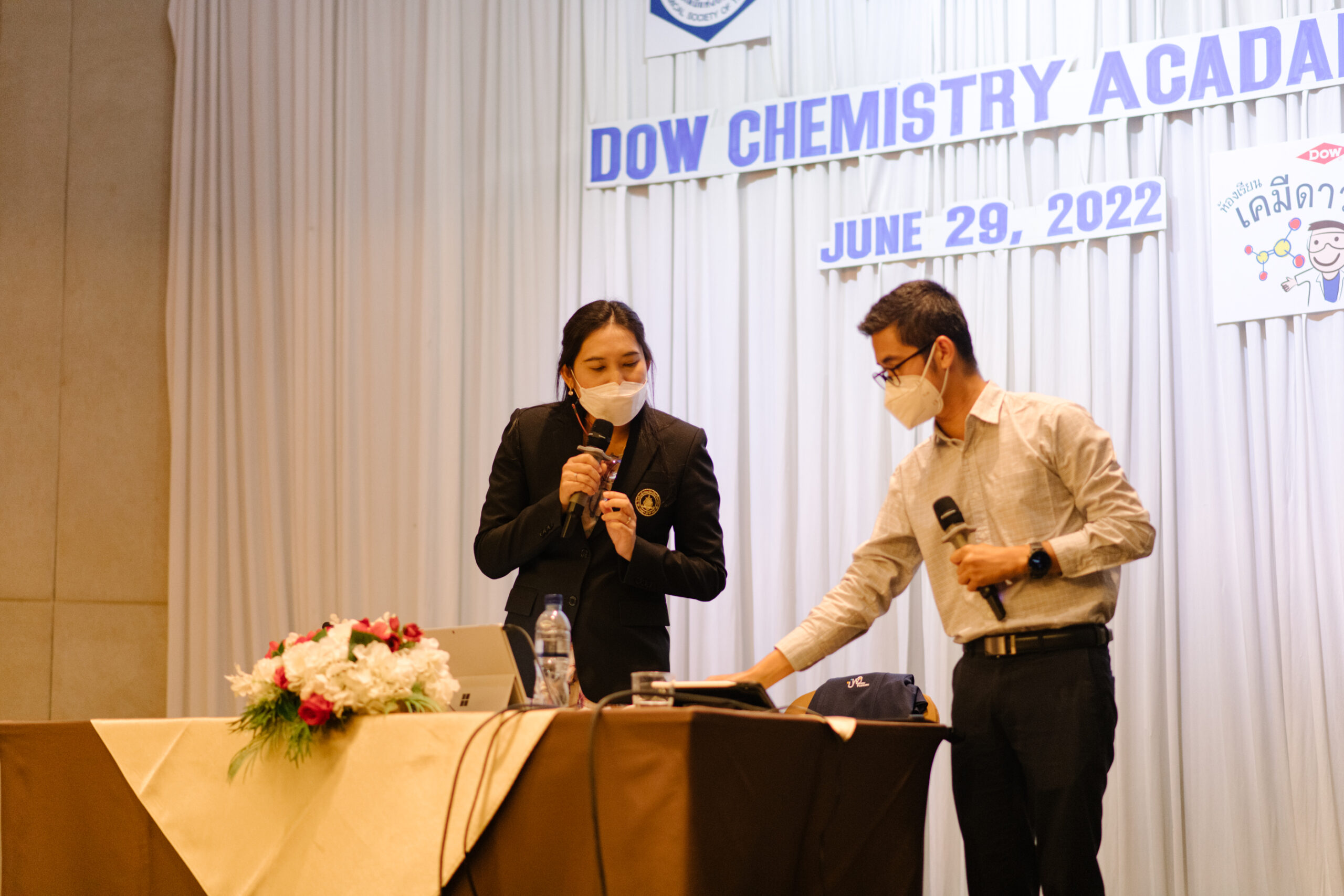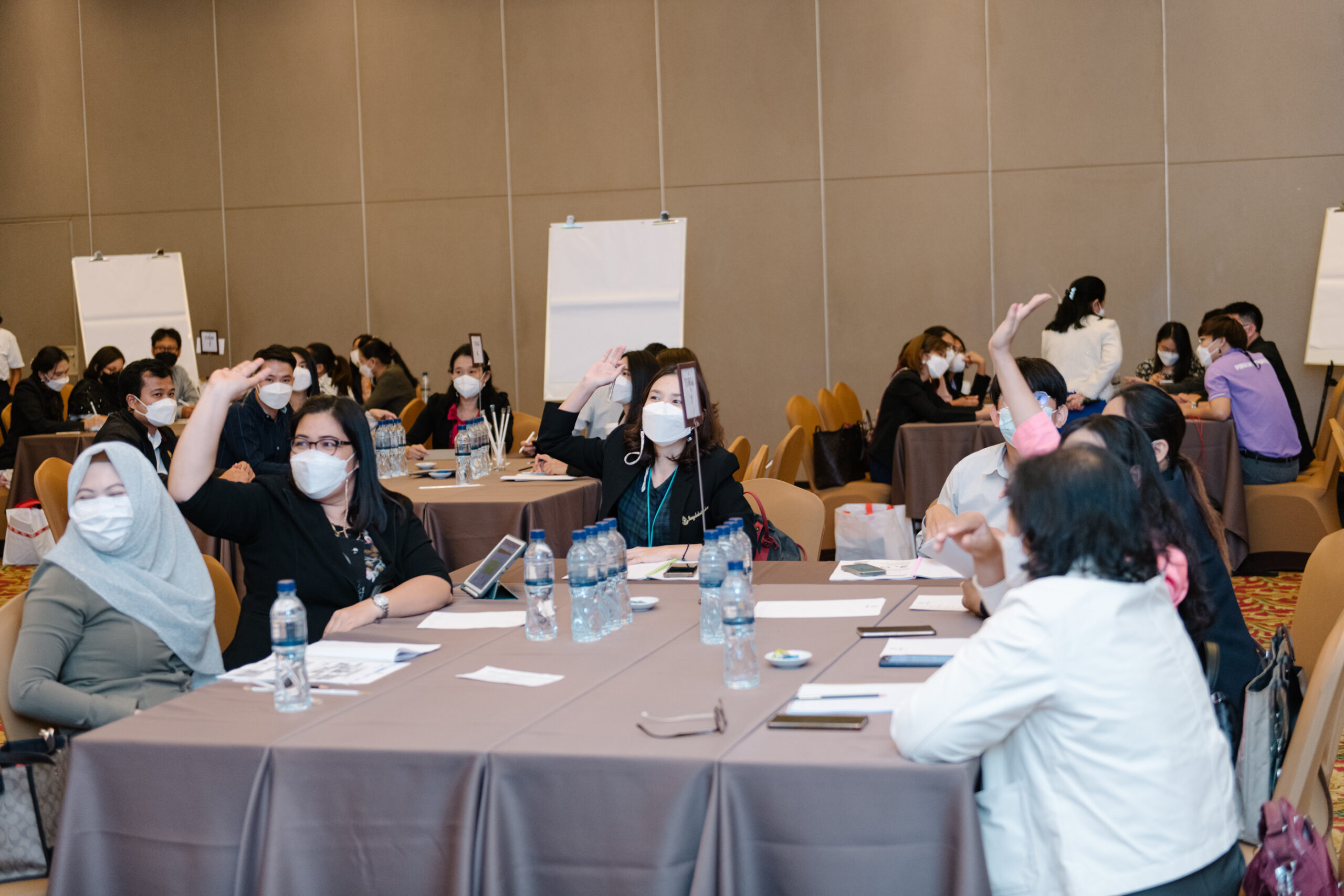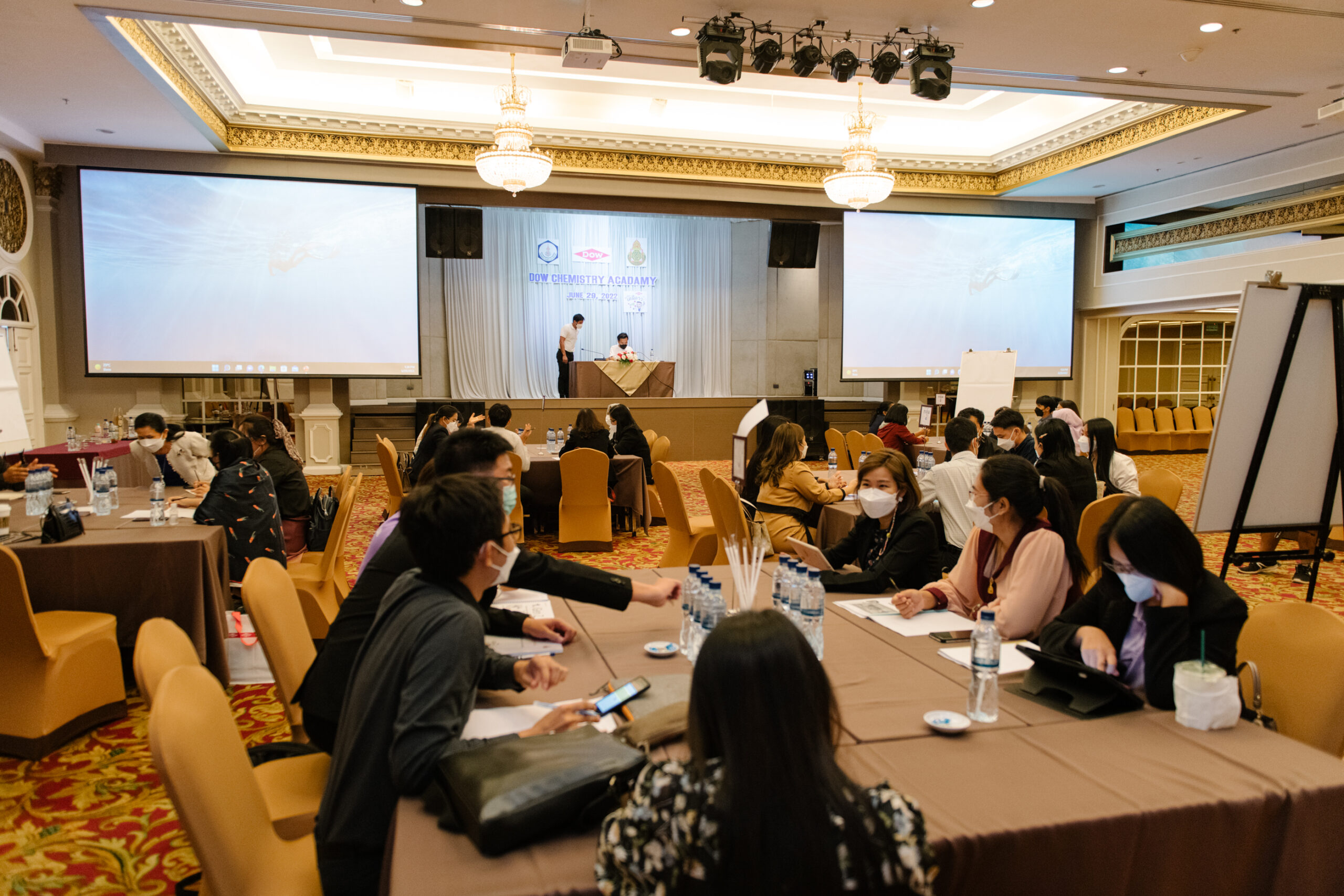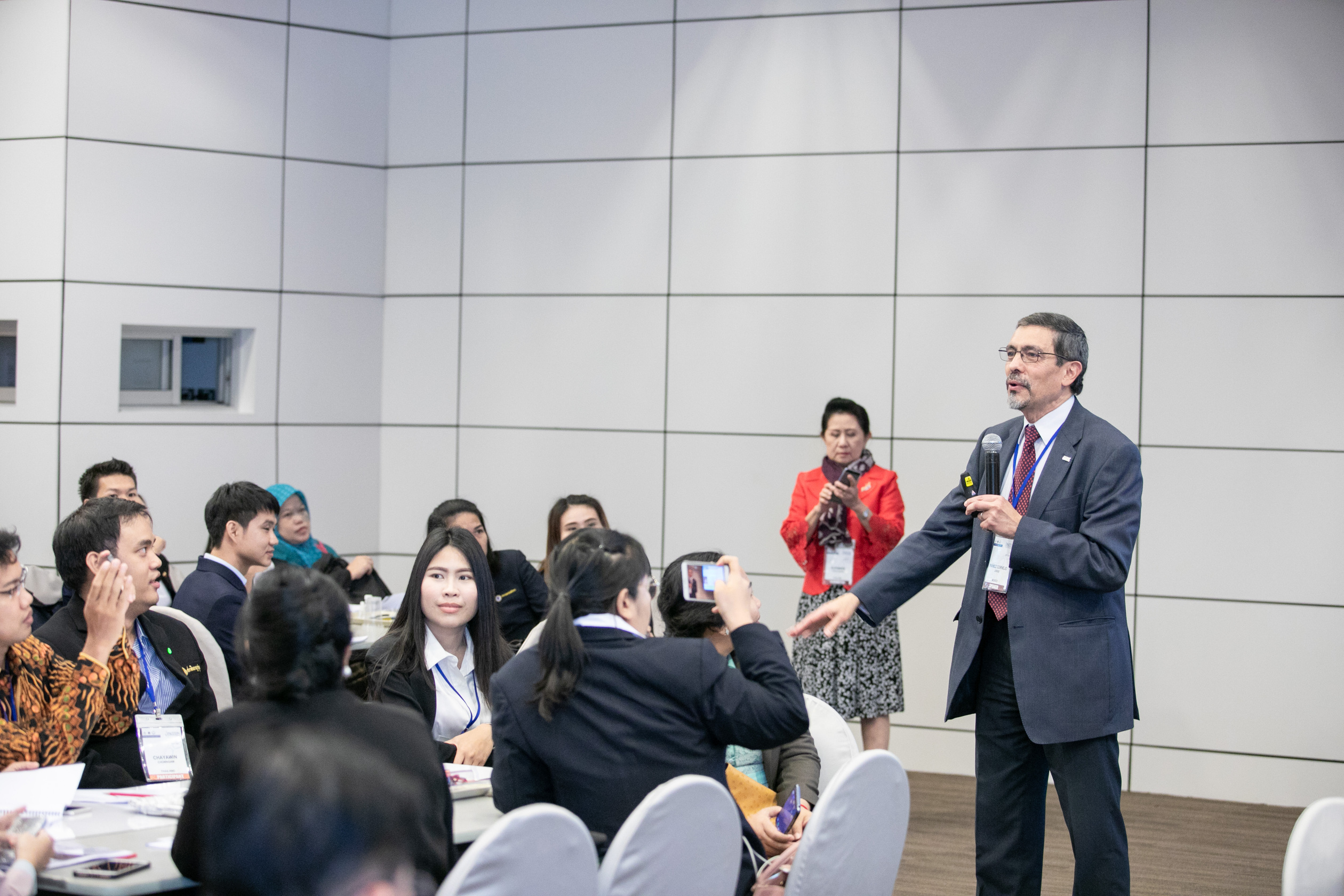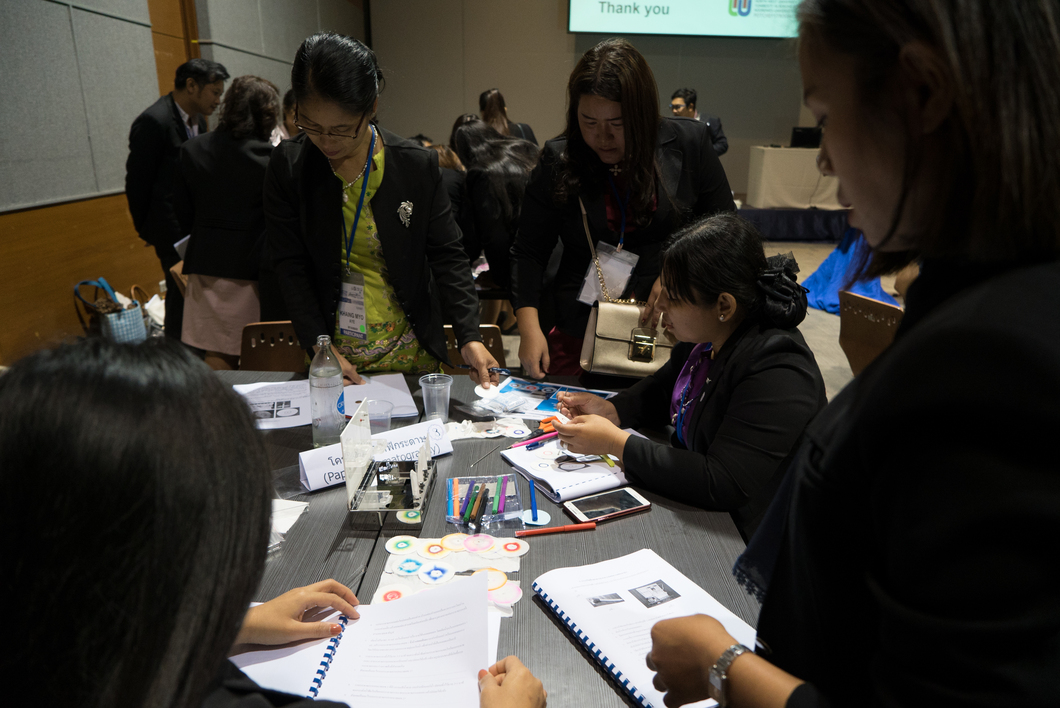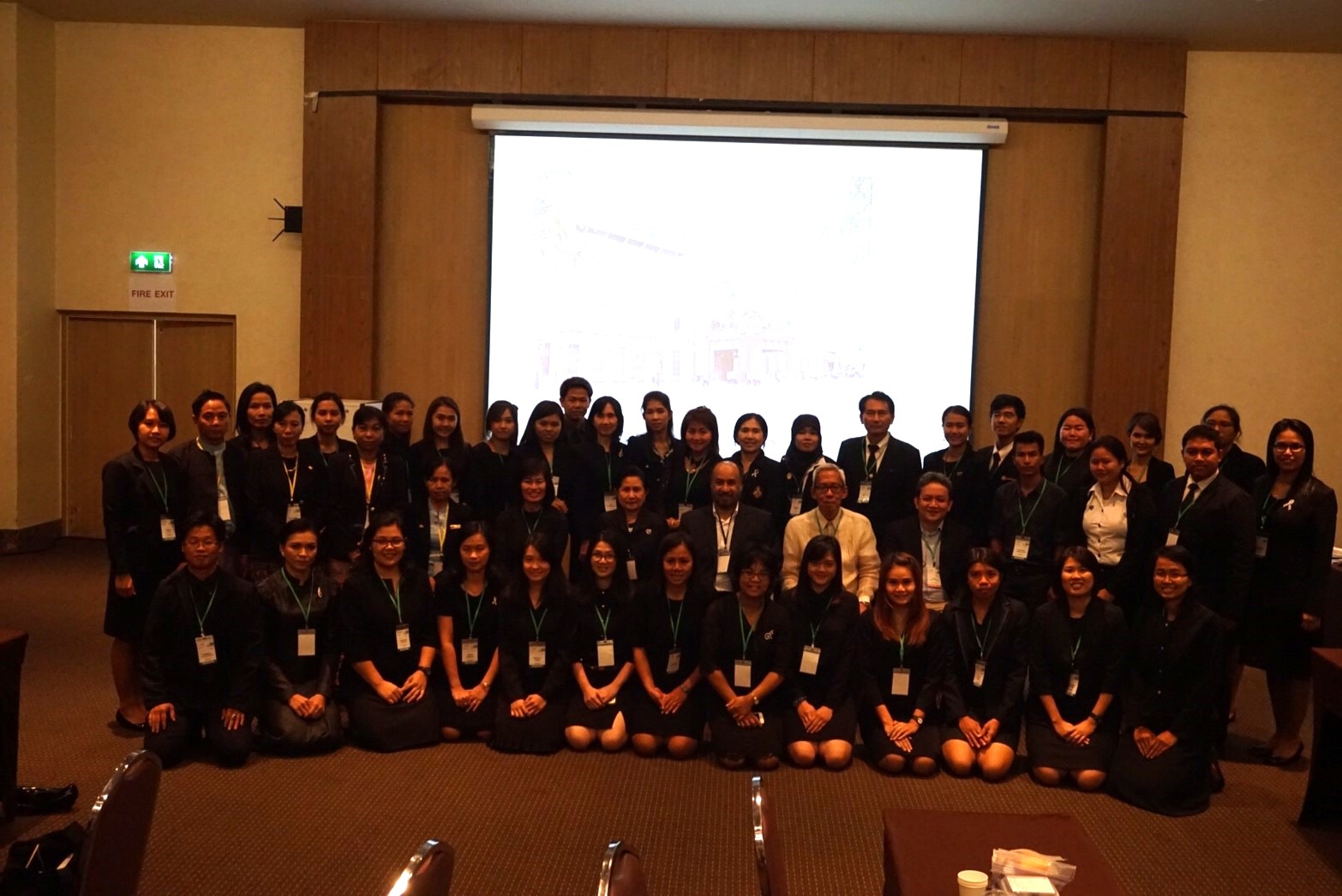
Small-Scale Chemistry: Safe, Sustainable, and Accessible Learning
What is Small-Scale Chemistry?
Small-Scale Chemistry (SSC) is an innovative method of conducting experiments using very small quantities of chemicals and simplified, safer equipment compared with traditional laboratory setups. Instead of filling large test tubes or beakers, SSC relies on drops, milliliters, or grams—carefully adjusted for each experiment.
Small Scale Chemistry in South Asia
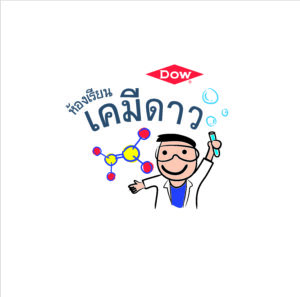
Dow Chemistry Classroom in Thailand
Networking & Training
2025
The Networking and Train the Trainer 2025 program brought together teachers from four countries:
- Thailand: 32 participants
- India: 10 participants
- Vietnam: 11 participants
- The Philippines: 6 participants
Networking Session
📅 Date: 13 February 2025
📍 Venue: Khao Yai Convention Center (KYCC), Nakhon Ratchasima, Thailand
This hands-on workshop was conducted by Dr. Angela Köhler-Krützfeldt (Romain-Rolland-Gymnasium, Berlin),
Title: Small scale experiments with catalysts
Train the Trainer Workshop
📅 Date: 14 February 2025
📍 Venue: Lacol Khaoyai – A Chatrium Collection, Nakhon Ratchasima, Thailand
2024
The Networking and Train the Trainer 2024 program brought together teachers from three countries:
- Thailand: 37 participants
- Sri Lanka: 10 participants
- The Philippines: 10 participants
Networking Session
📅 Date: 26 January 2024
📍 Venue: Bangkok International Trade & Exhibition Center, Bangkok, Thailand
This hands-on workshop was conducted by Prof. Metodija Najdoski (Faculty of Natural Sciences and Mathematics, Ss. Cyril and Methodius University, Republic of North Macedonia),
Title: Microscale/Small scale chemistry experiments from Macedonia (online)
Train the Trainer Workshop
📅 Date: 27 January 2024
📍 Venue: Hotel JAL City Bangkok, Thailand
2023
The Networking and Train the Trainer 2023 program brought together teachers from five countries:
- Thailand: 30 participants
- Vietnam: 11 participants
- Indonesia: 14 participants
- Nepal: 10 participants
- Cambodia: 15 participants
Networking Session
📅 Date: 21 January 2023
📍 Venue: Mae Fah Luang University, Chiang Rai, Thailand
This hands-on workshop was conducted by Mr. Bob Worley, a semi-retired chemistry advisor for CLEAPSS (UK),
Title: Using small-scale chemistry to uncover information for teachers and students about how “simple” chemical processes used in schools, operate. However, there are barriers in the way
and five experiments (online) –
- Indicator Colours at different pH
- Solubility and Precipitates
- Chemistry of Transition Metal – Iron
- Conductivity and Ion Detection
- Diffusing Precipitates
Train the Trainer Workshop
📅 Date: 22 January 2023
📍 Venue: Sann Hotel, Chiang Rai, Thailand
2022
The Networking and Train the Trainer 2022 program brought together teachers from one country. Due to the COVID-19 pandemic, international travel was restricted, preventing overseas participation:
- Thailand: 50 participants
Networking Session
📅 Date: 30 June 2022
📍 Venue: KMITL Auditorium, King Mongkut’s Institute of Technology Ladkrabang, Bangkok, Thailand
This hands-on workshop was conducted by Assoc. Prof. Dr. Supakorn Boonyuen (Department of Chemistry, Faculty of Science and Technology, Thammasat University) and Mrs. Saranrom Yingsuk (Prachinratsadornamroong School), focusing on the use of portable visible Spectro photometer.
Train the Trainer Workshop
📅 Date: 29 June 2022
📍 Venue: Mandarin Hotel, Bangkok, Thailand.
2020
The Networking and Train the Trainer 2020 program brought together teachers from five countries:
- Thailand: 50 participants
- Myanmar: 27 participants
- Indonesia: 16 participants
- Cambodia: 10 participants
- Vietnam: 10 participants
Networking Session
📅 Date: 13 February 2020
📍 Venue: IMPACT Arena, Exhibition and Convention Center, Muang Thong Thani, Bangkok, Thailand
This hands-on workshop was conducted by Prof. Dr. Bruce Mattson (Creighton University, Omaha, Nebraska, USA),
Title: Microscale Gas Chemistry (online)
Train the Trainer Workshop
📅 Date: 12 February 2020
📍 Venue: Mandarin Hotel, Bangkok, Thailand
2019
The Networking and Train the Trainer 2019 program brought together teachers from four countries:
- Thailand: 43 participants
- Myanmar: 20 participants
- Indonesia: 10 participants
- Cambodia: 10 participants
Networking Session
📅 Date: 7 February 2019
📍 Venue: Bangkok International Trade & Exhibition Center, Bangkok, Thailand
This hands-on workshop was conducted by Prof. Dr. Jorge G. Ibanez (Mexican Green and Microscale Chemistry Center, Universidad Iberoamericana),
Title: Five Small Scale workshop
- All road lead to Rome: Triple Stoichiometry with a lithium Battery
- Patriotic Acid/Base Chemistry: The Mexican and Thailand Flag Colors
- The One-Penny Photovoltaic Cell
- Metal ion recovery-The production of a fractal
- Photoassisted reduction of Metal Complexes
Train the Trainer Workshop
📅 Date: 6 February 2019
📍 Venue: Asia Hotel, Bangkok, Thailand
2018
In 2018, the Networking and Train the Trainer program facilitated the participation of educators from two countries, comprising 47 teachers from Thailand and 12 from Myanmar.
Networking Session
📅 Date: 7 February 2018
📍 Venue: The 60th Anniversary of His Majesty the King’s
Accession to the Throne International Convention Center, Prince of Songkla University, Songkla, Thailand
A hands-on workshop titled ‘Small Scale Chemistry Workshop with MyLab Kit’ was conducted by Assoc. Prof. Dr. Marie Dutoit from North-West University, South Africa.
Train the Trainer Workshop
📅 Date: 8–9 February 2018
📍 Venue: Asia Hotel, Bangkok, Thailand
2017
In 2017, the Networking and Train the Trainer program united 40 educators from Thailand to foster collaboration and enhance teaching competencies.
Networking Session
📅 Date: 2 February 2017
📍 Venue: Centara Government Complex Hotel & Convention Center, Chaeng Watthana, Bangkok, Thailand
A hands-on workshop titled ‘Fabrication and Application of a Low-Cost Small-Scale Colorimeter for High School Chemistry Laboratory Courses’ was conducted by Prof. Dr. Jose H. Bergantin, Jr. and Prof. Dr. Fortunato Sevilla III from the University of Santo Tomas, Philippines.
Train the Trainer Workshop
📅 Date: 18–19 February 2017
📍 Venue: Chatrium Hotel Riverside Bangkok, Thailand
Small Scale Chemistry in ASEAN

Malaysia in 2025
The BBL-CST Small Scale Chemistry Training for Secondary School Teachers in Malysia Project was held on April 9-10, 2025,
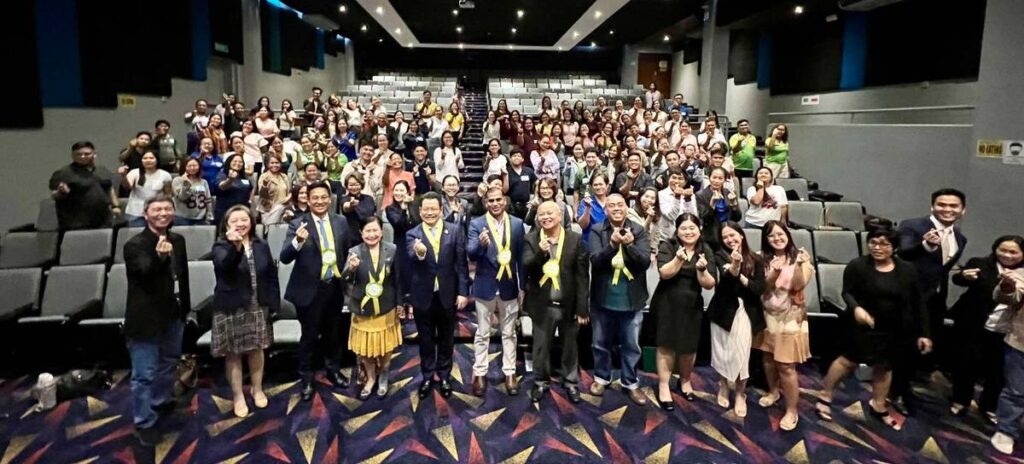
Philippines in 2023-2025

Vietnam in 2019-2024

Indonesia in 2018-2022
BBL-CST Small Scale Chemistry Training Empowers Teachers in Indonesia (2018-2022)

Cambodia in 2018-2022
BBL-CST Small Scale Chemistry Training Empowers Teachers in Cambodia (2018-2022)

Myanmar in 2017-2019
BBL-CST Small Scale Chemistry Training Empowers Teachers in Myanmar (2017–2019)
Recent Highlights

EMPOWERING EDUCATORS FOR A GREENER TOMORROW: Small-scale chemistry training for Mindanao HS teachers

Small scale chemistry experiments in 603-604 Suankularb Rangsit School By Assoc. Prof. Dr. Supakorn Boonyuen, August 2025




























